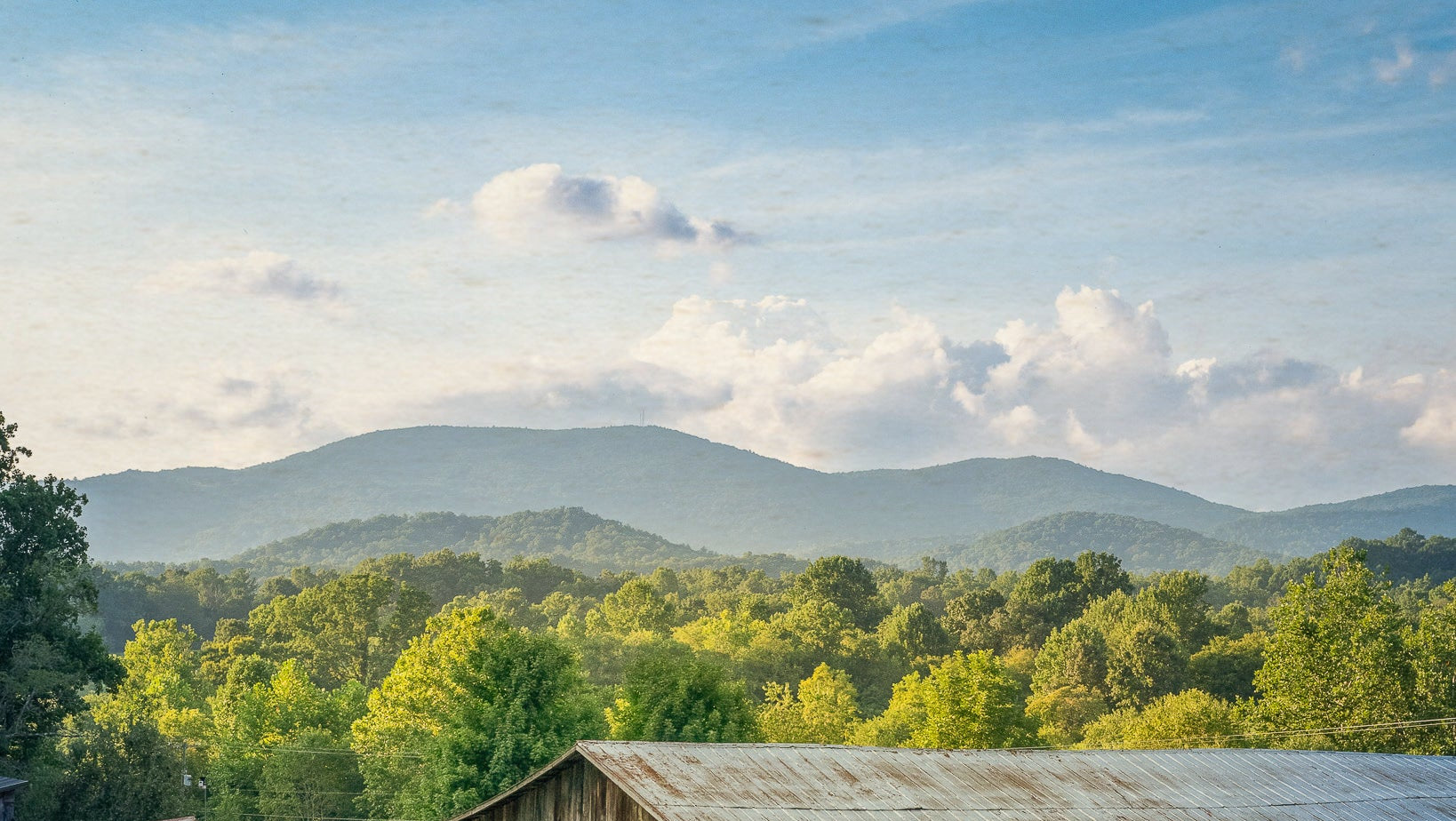
Welcome to Hickory Nut Gap
Our home farm is located in Western North Carolina, in Hickory Nut Gap. This a geological landmark formed by a low-elevation gorge that runs on the edge of the Blue Ridge Escarpment. Beyond Hickory Nut Gap, the gorge continues to drop 1800 feet in elevation before ending in Lake Lure, North Carolina.
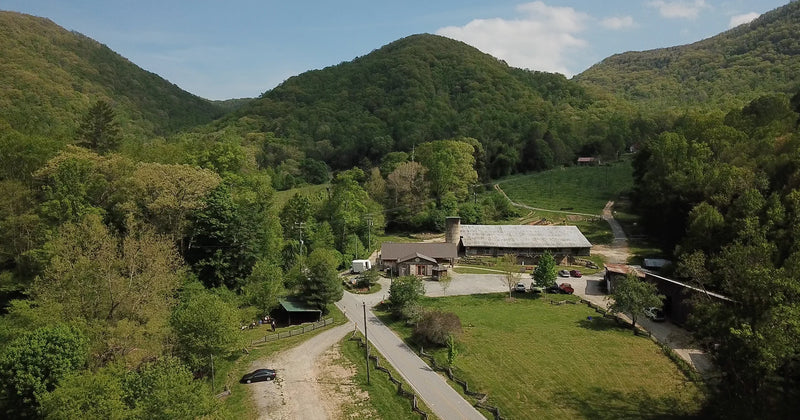
Mission & Vision
At Hickory Nut Gap, we believe that building community through agriculture is the foundation for creating a more hopeful, resilient food system. By connecting people to the land, to each other, and to the sources of their food, we foster relationships rooted in trust, transparency, and shared values. Our vision—to create hope for the food system, one pasture at a time—comes to life in every pasture we steward, every farmer we support, and every customer we feed. It's a mission grounded in regeneration, and a future we're growing together.
Core Values
-
relationships
We collaborate, learn, and share success, knowing our partners, customers, and communities thrive together. We seek solutions and create lasting impact.
-
Resilience
Like deep roots in healthy soil, resilience comes from the right inputs—care, intention, and hard work. We adapt, learn, and persevere, ensuring our our community thrives for generations to come.
-
Reliability
We choose impact over ease. Regenerative farming takes patience, grit, and trust—built one pasture at a time. We show up, adapt, and follow through, ensuring lasting change in our food system.
-
Passion
Passion drives us—caring our land, animals, farmers, and customers. We love great food, push for better, and fight for change. This isn’t just work—it’s our passion and an everyday commitment.
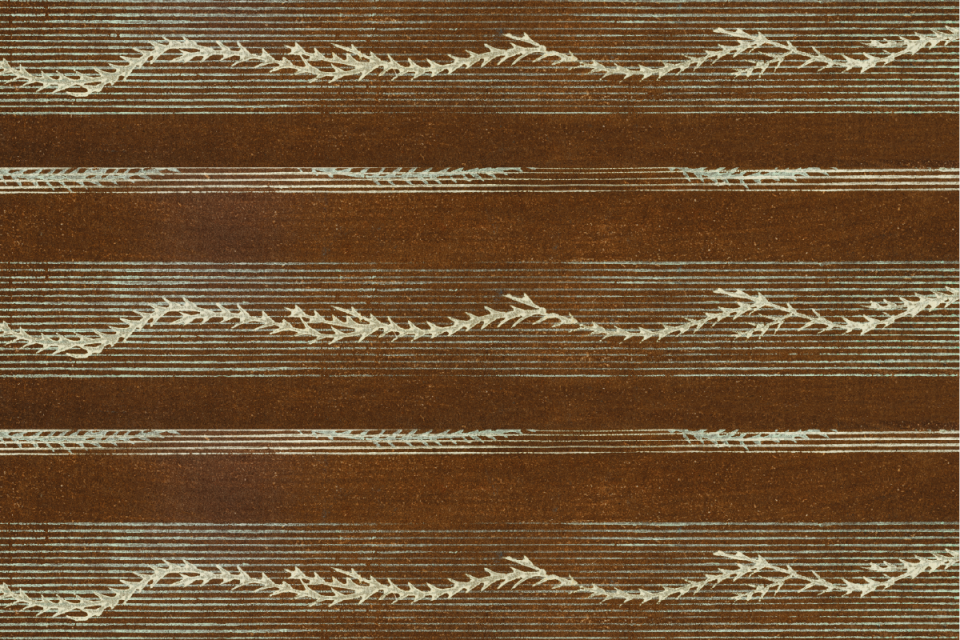
Meet the Team
Our people make it possible.
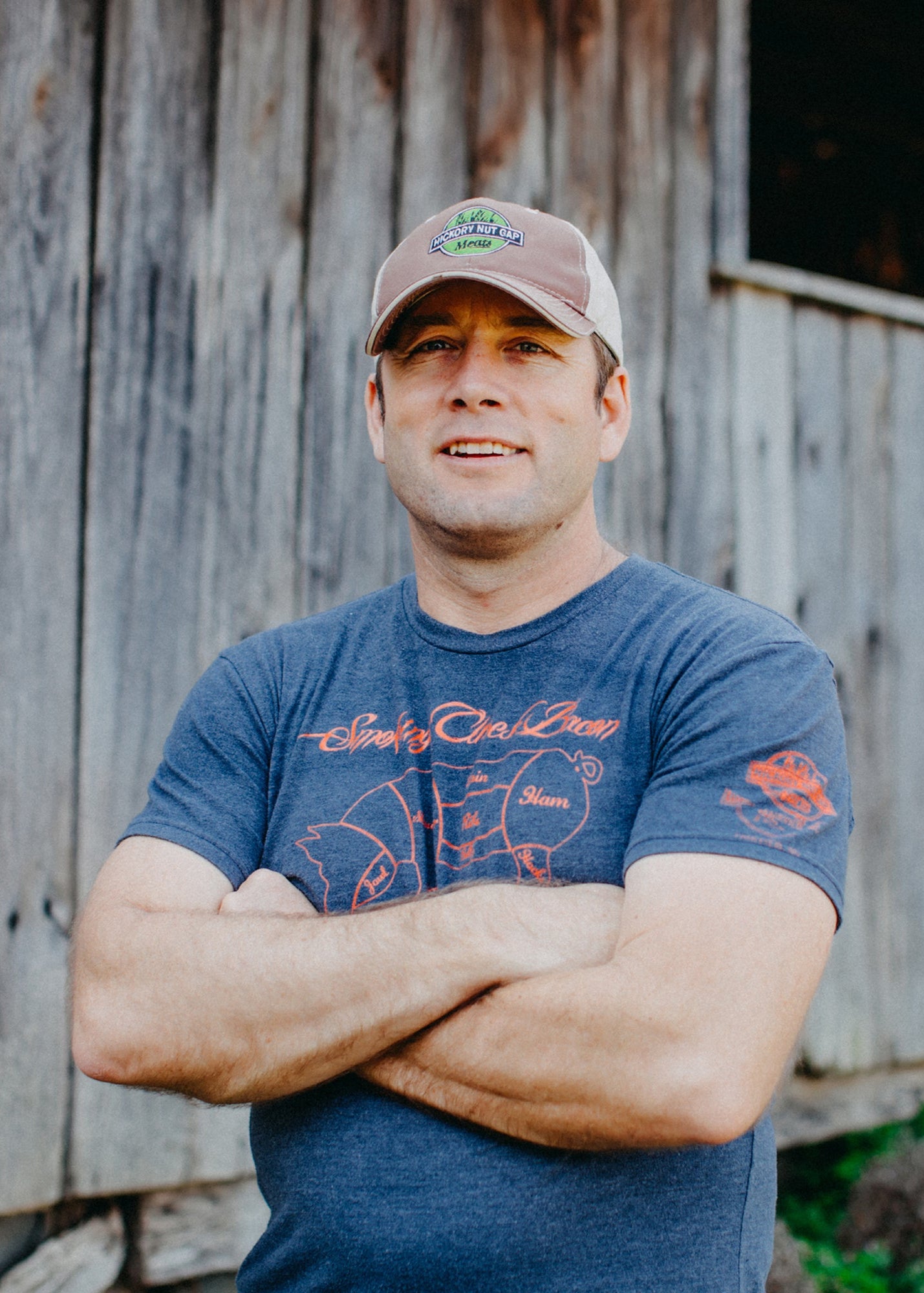
Jamie Ager, CEO & Co-Founder
Jamie Ager is a fourth-generation family farmer in Fairview, NC. Alongside his wife, Amy, he has built a leading regenerative meat brand rooted in community, soil health, and humane animal care. A Warren Wilson College graduate, Jamie developed the “working together” system to foster teamwork and problem-solving across the organization. Hickory Nut Gap now sources from top pasture-based farmers in the Southeast, serving retail and foodservice partners like Whole Foods and Farm Burger. The home farm is also a Savory Hub, offering education and experiences in regenerative agriculture and land stewardship.
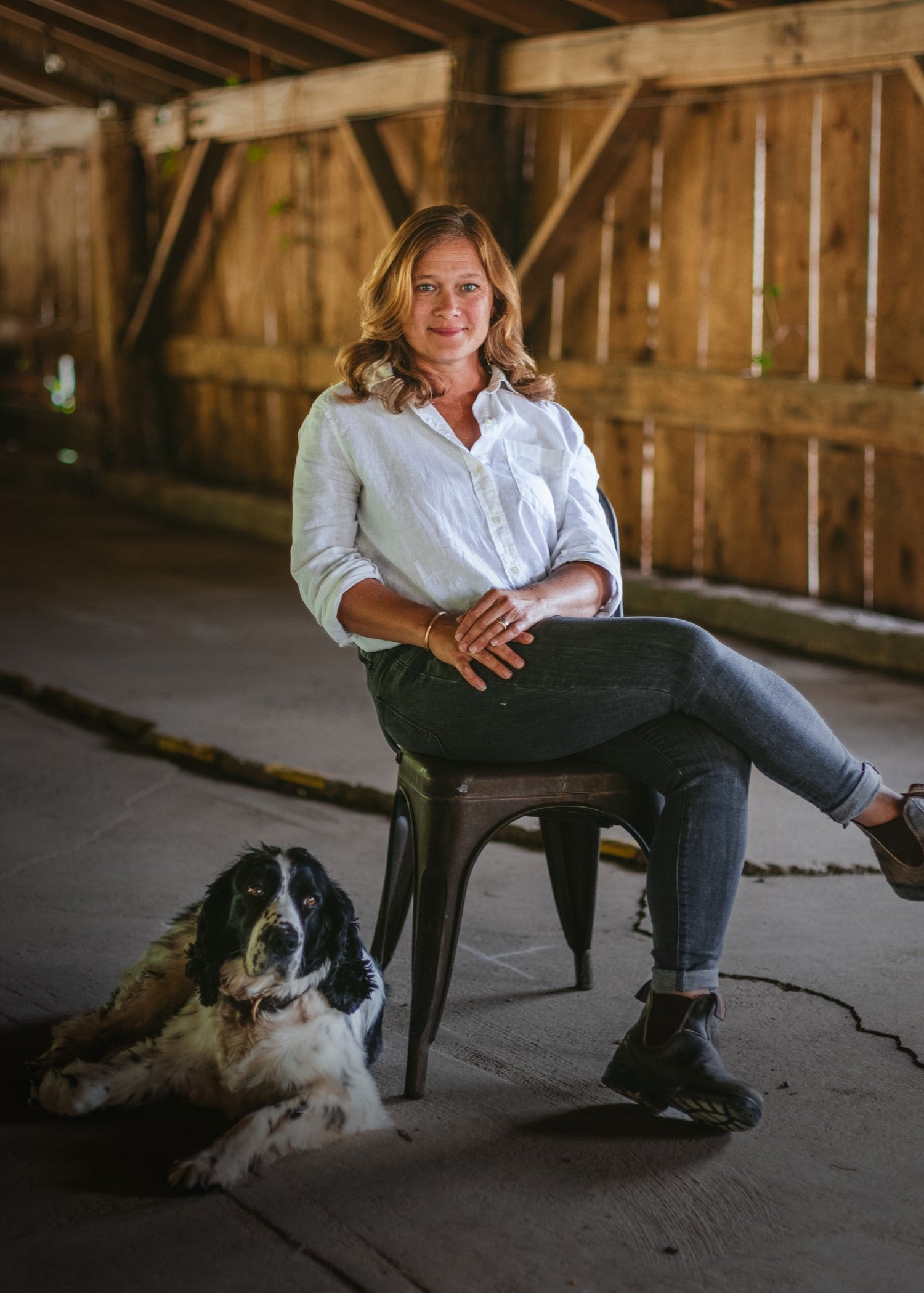
Amy Frey Ager, Co-Founder
Amy Frey Ager is the co-founder of Hickory Nut Gap and a passionate advocate for regenerative agriculture and local food systems. A graduate of Warren Wilson College, Amy combines her background in sustainable farming with a strong focus on community-building, education, and entrepreneurship. She has played a central role in growing Hickory Nut Gap from a small family farm into a regenerative brand known for its pasture-raised meats and commitment to land stewardship. Amy holds an advisory role at the farm and wholesale companies, and provides strategic insight and leadership.
Wholesale Team
-
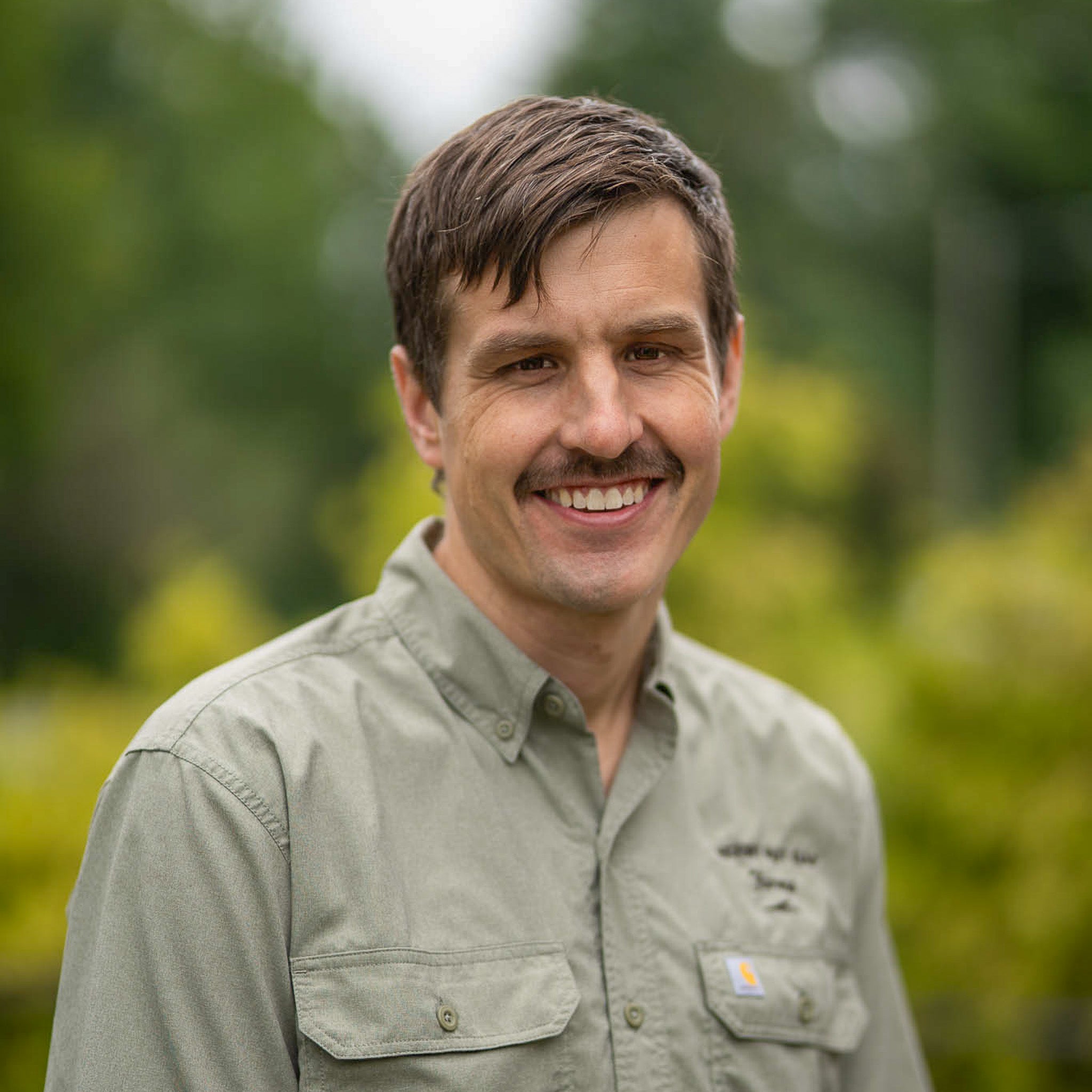
Mark Bigelow
Head of Operations
-
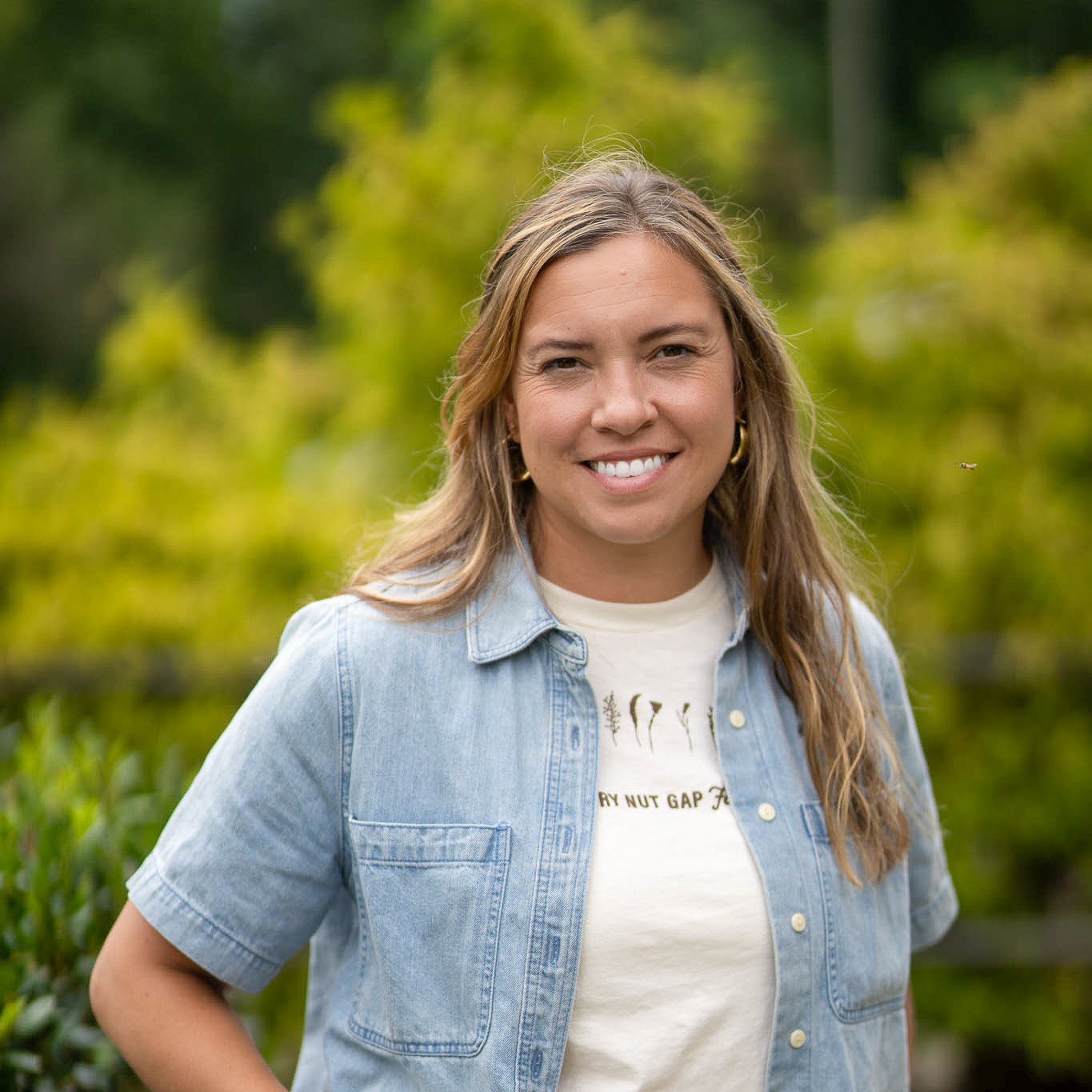
Mary Byers
Head of Marketing
-

Henry Dixon
Assistant Warehouse Manager
-

JOSH DIXON
Warehouse Associate
-
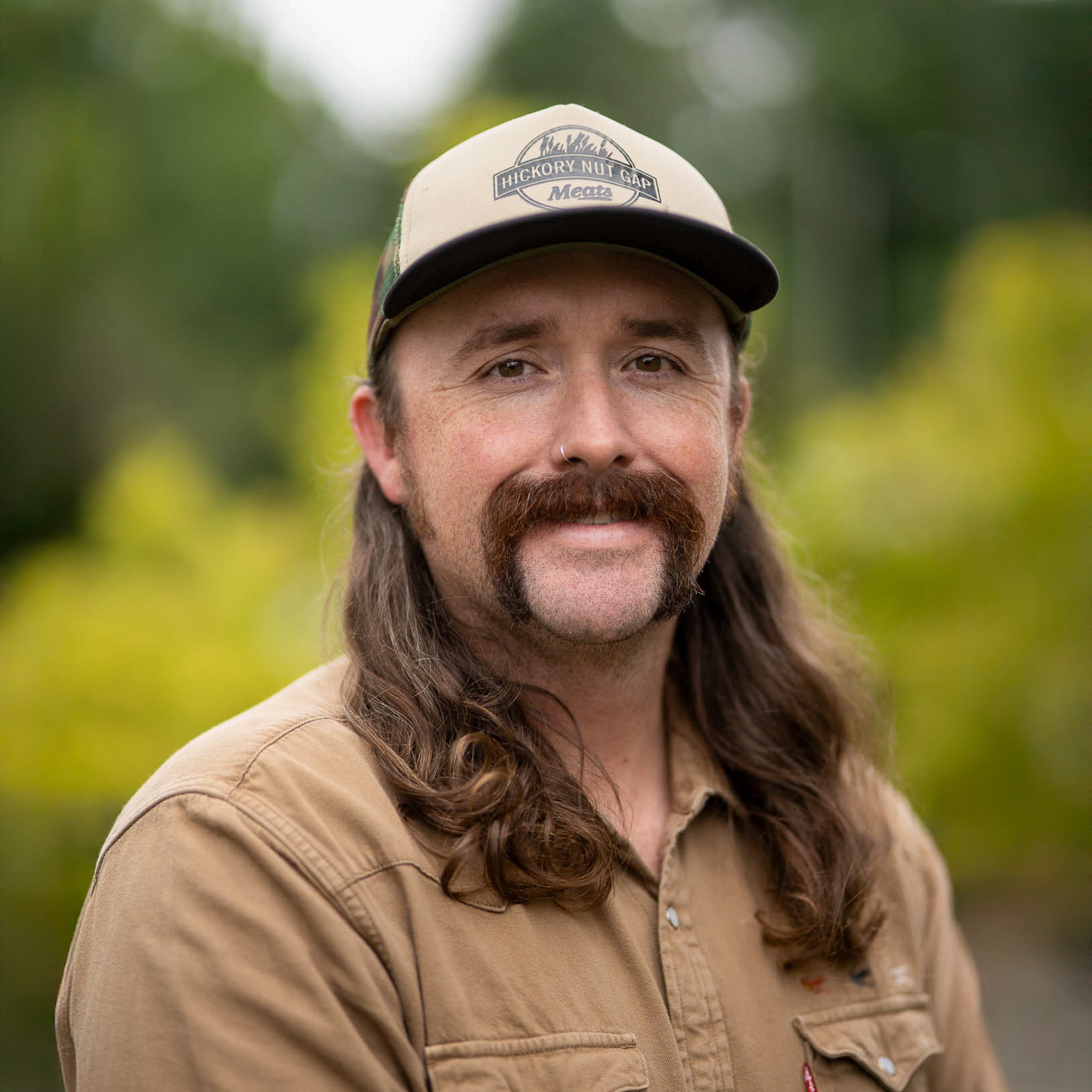
Jerry Jenkins
Production Manager
-
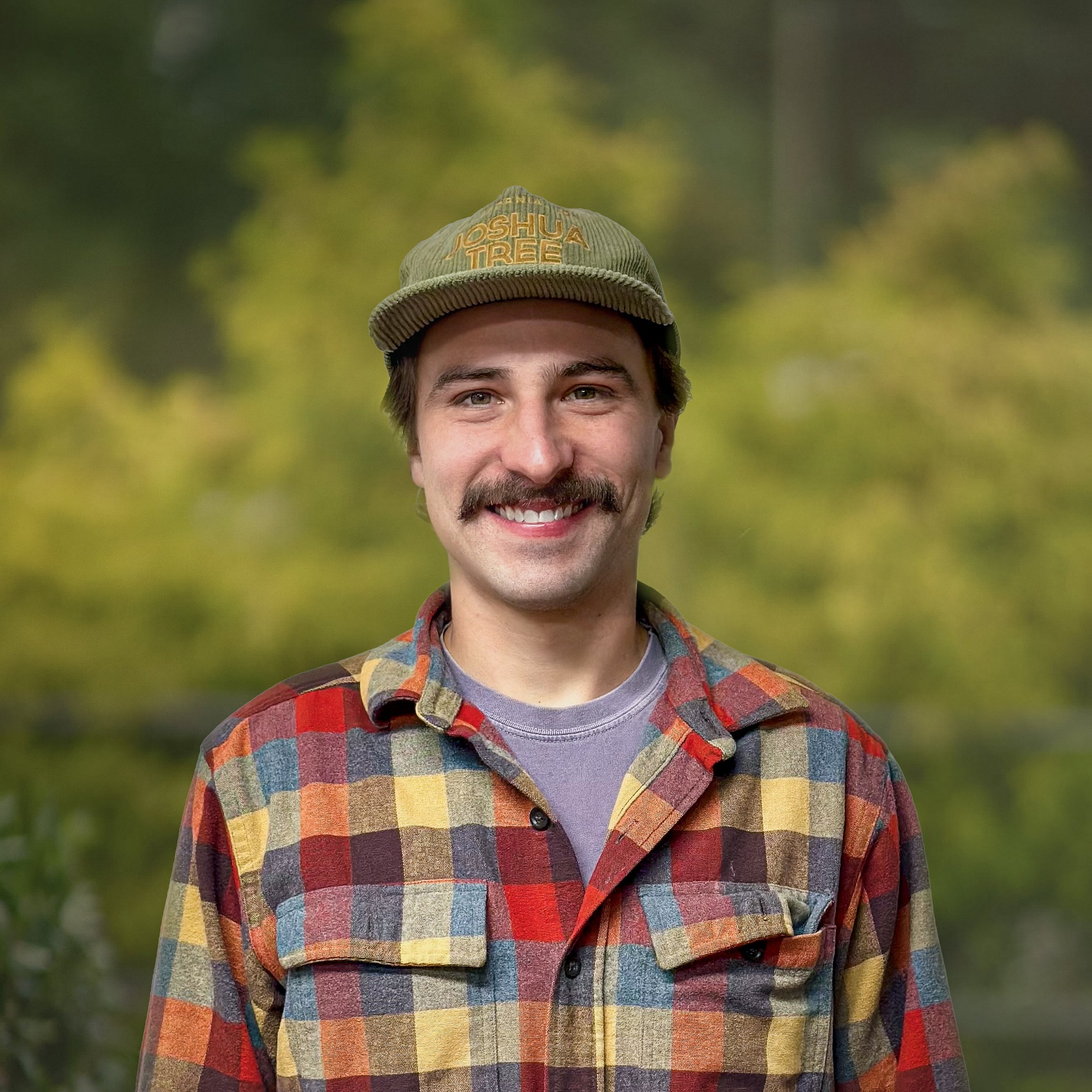
Nate Jones
Warehouse Manager
-
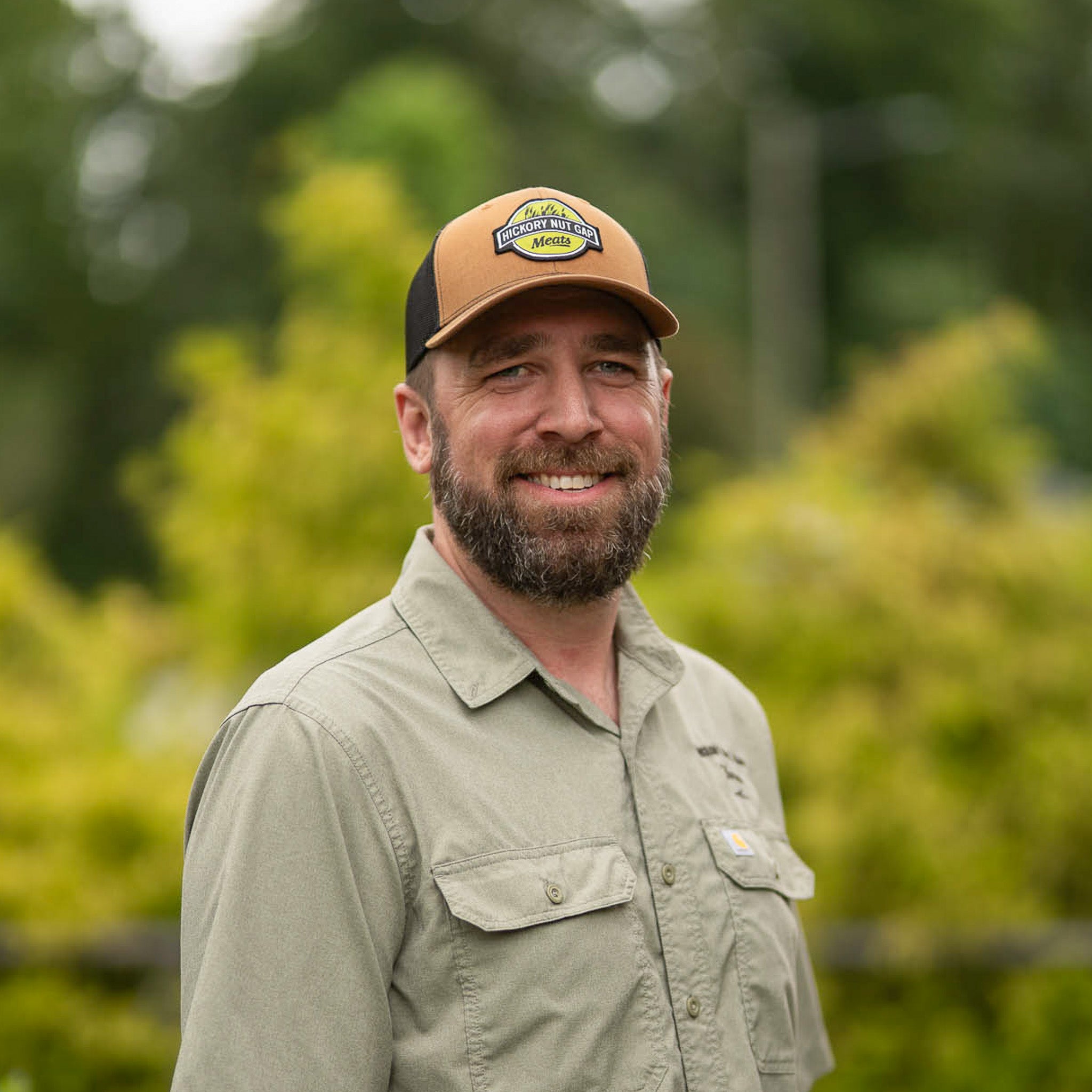
Andrew Koch
Food Service Sales Manager
-
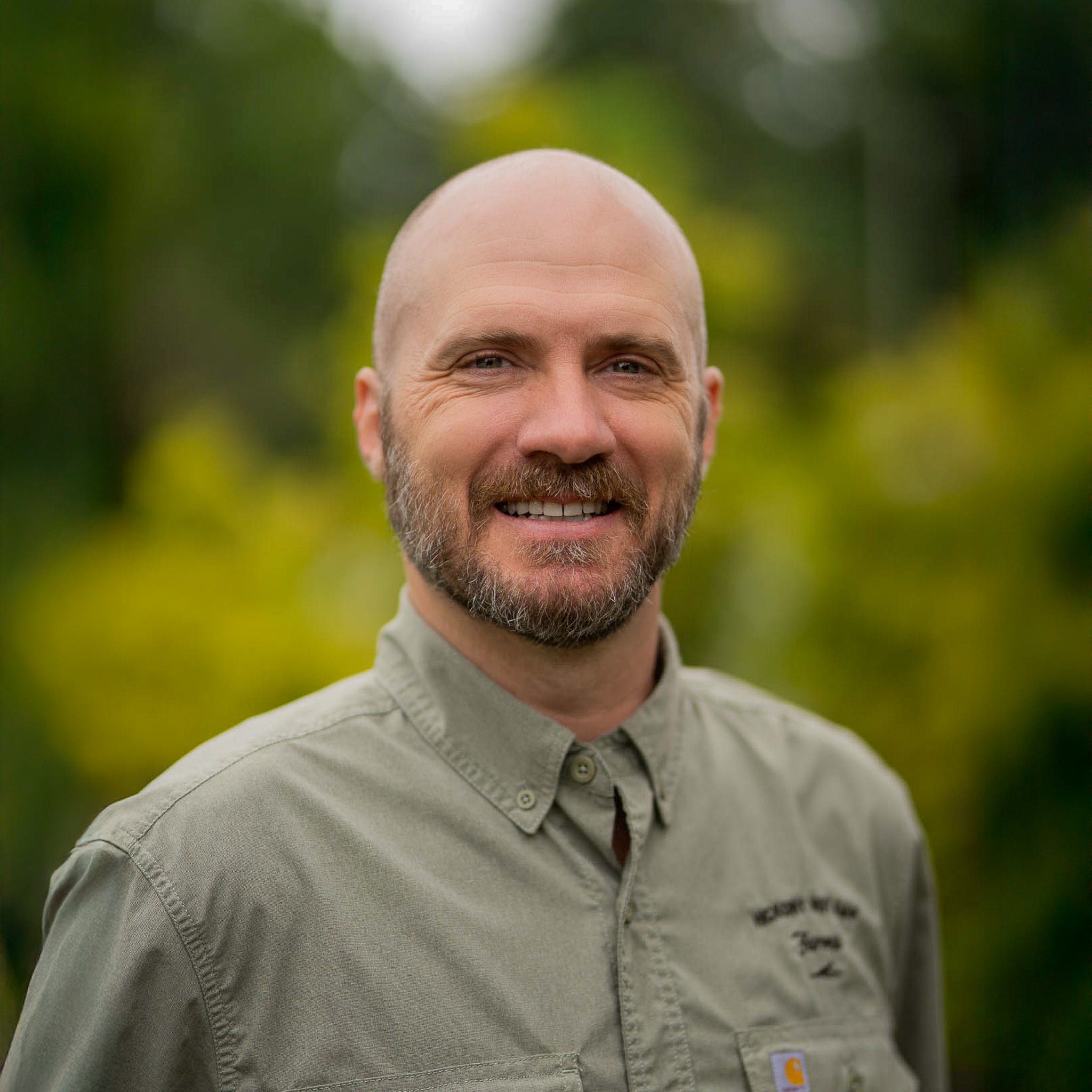
Ross Long
Senior Sales Manager
-
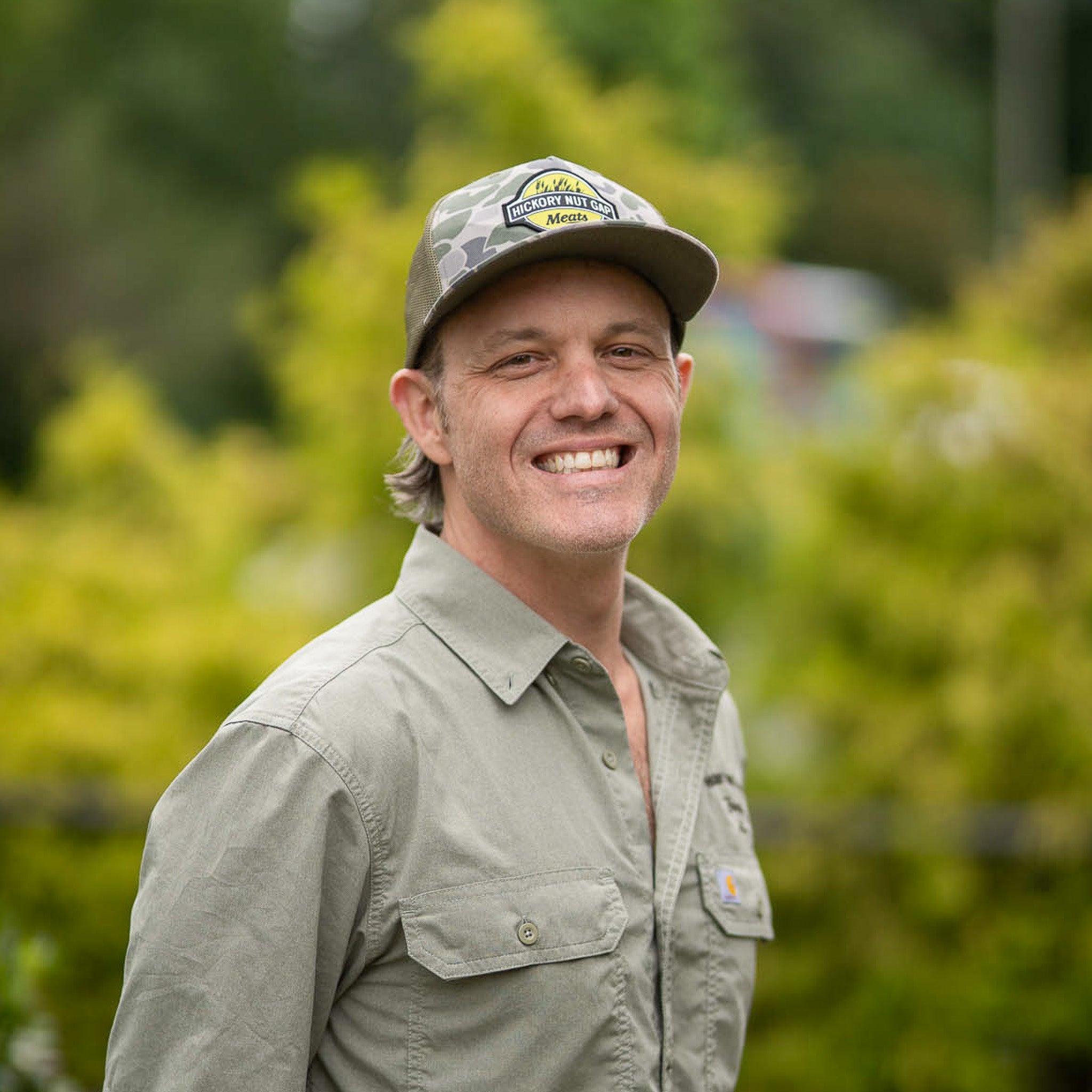
Brandon Lowery
Head of Sales
-
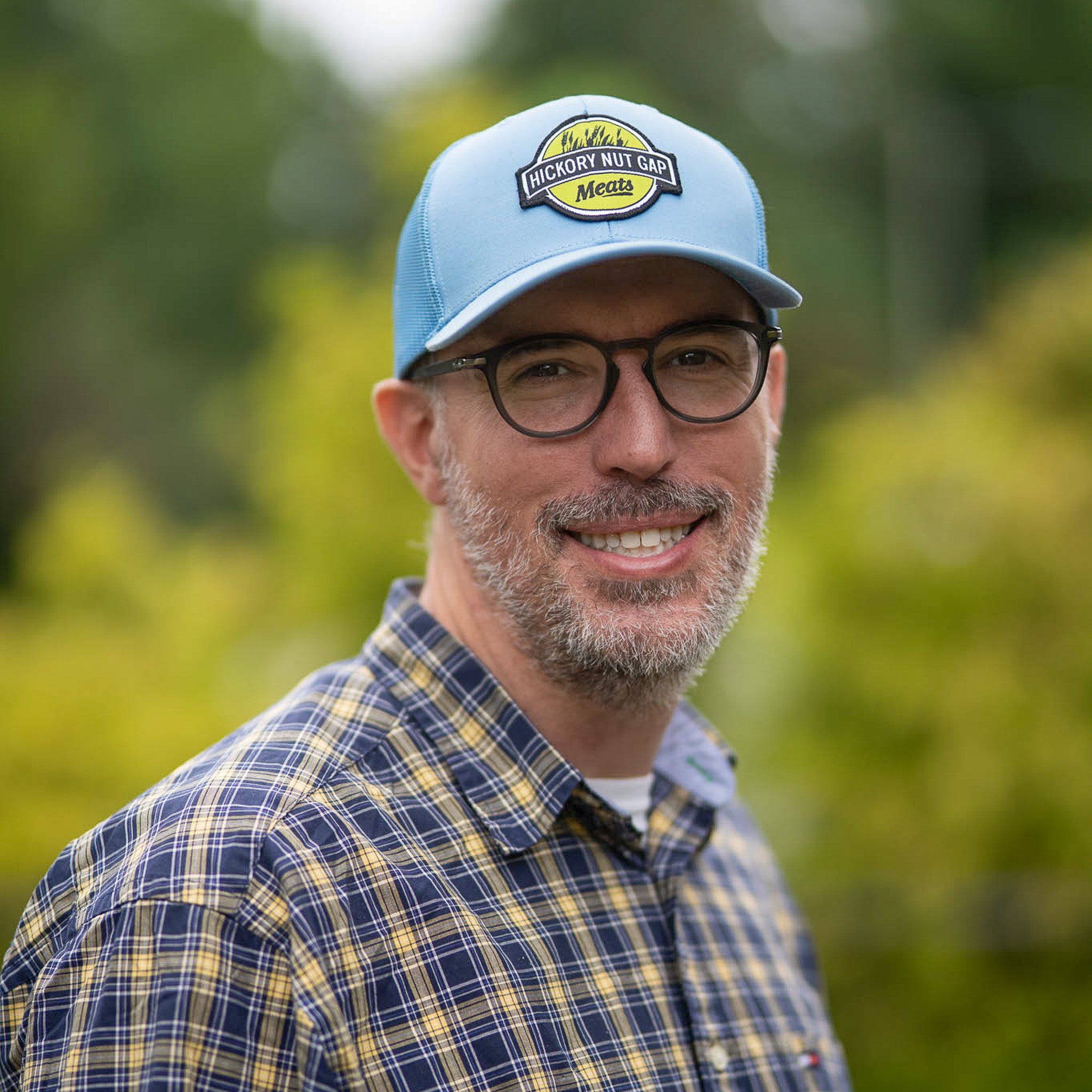
Scott McDonald
Head of Finance
-
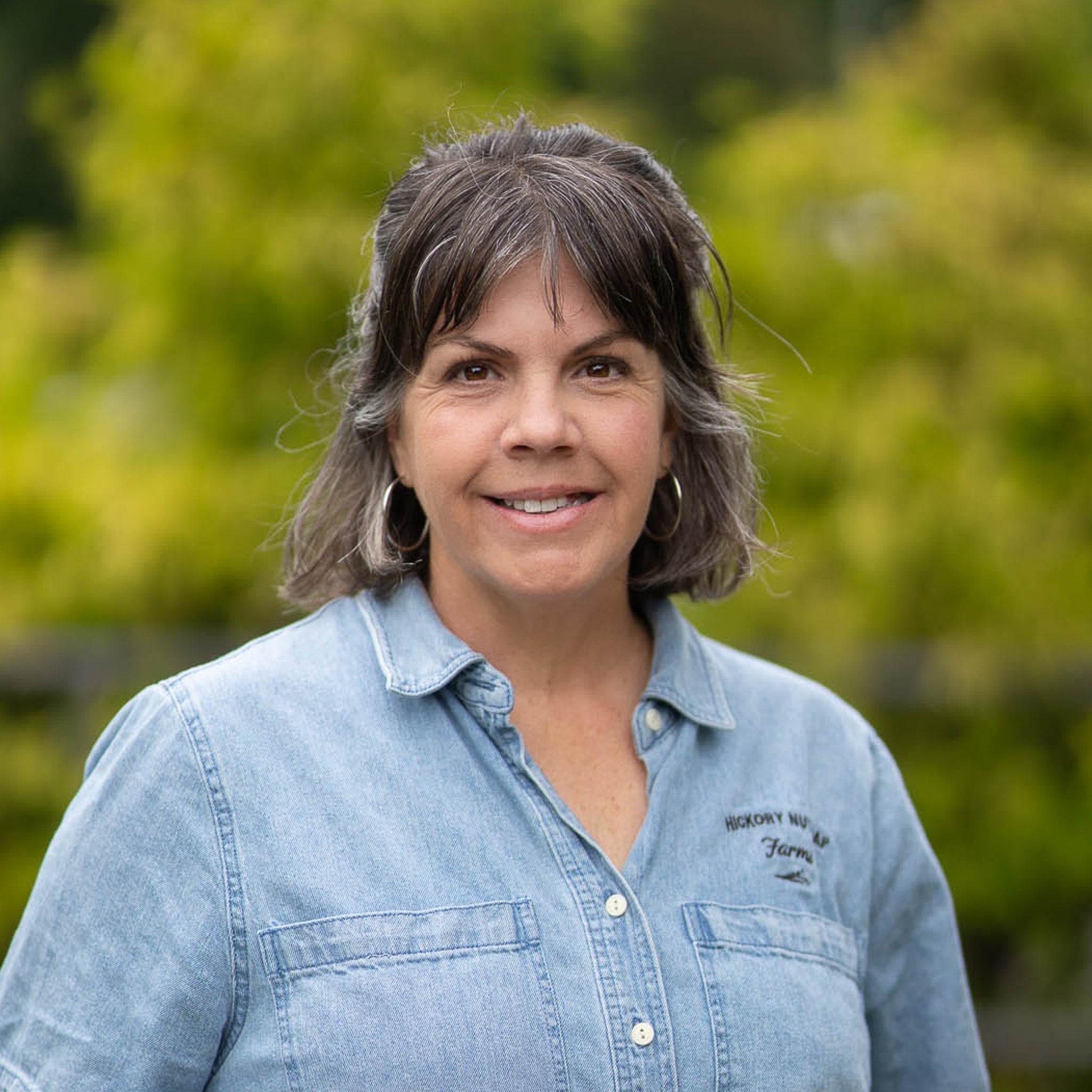
Amy McDowell
Field Marketing Coordinator
-
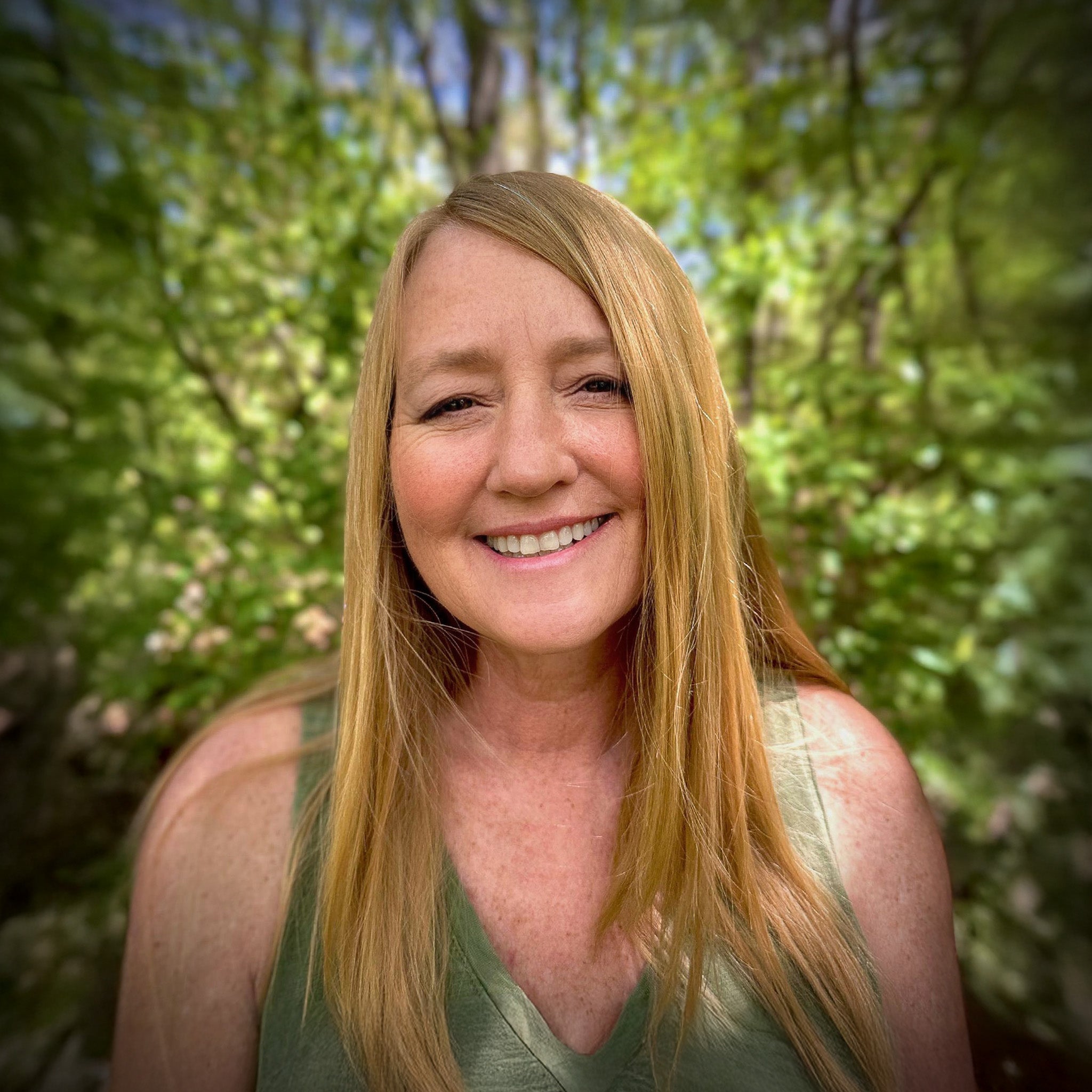
Wanda McMinn
Senior Accountant
-
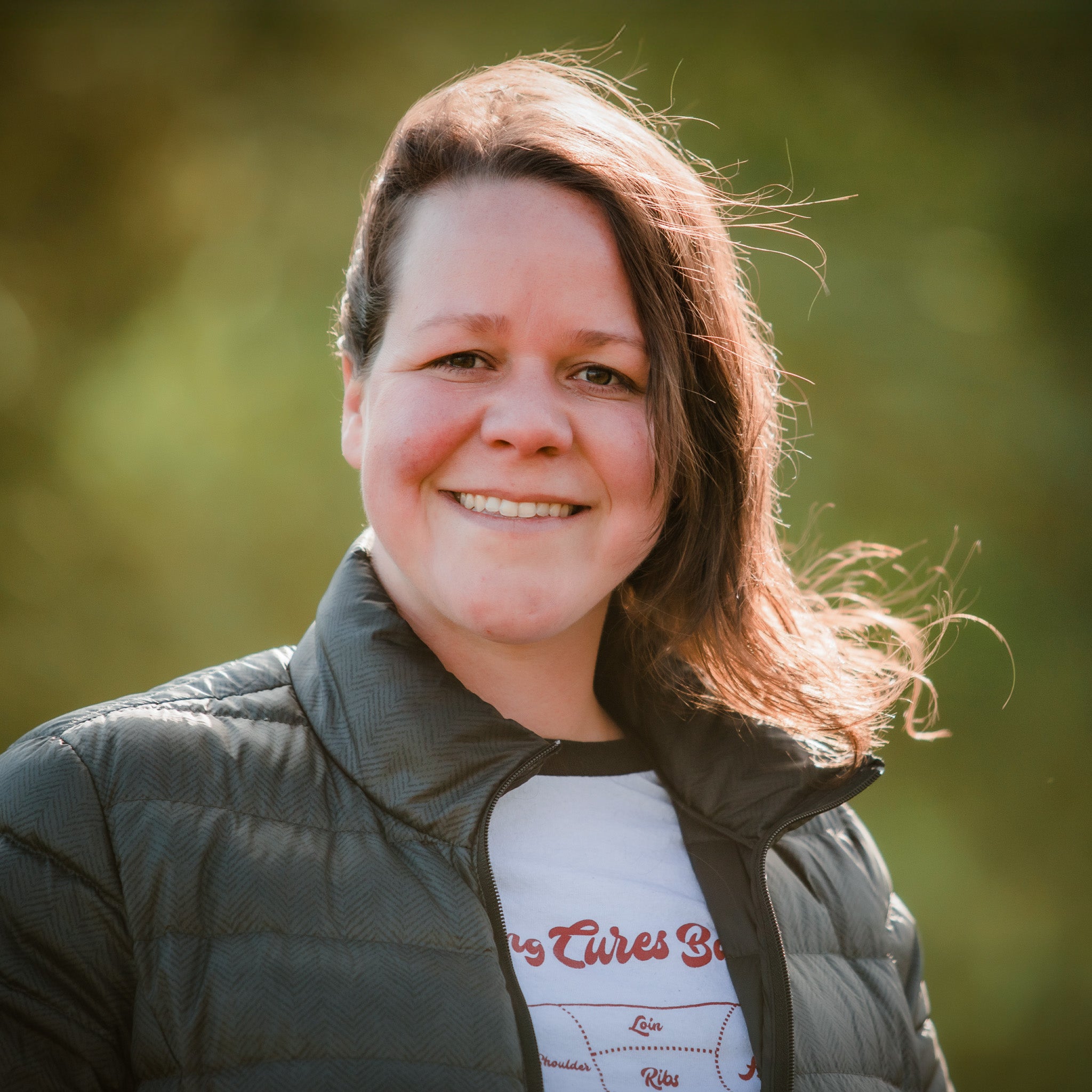
Hallie Payne
Controller
-
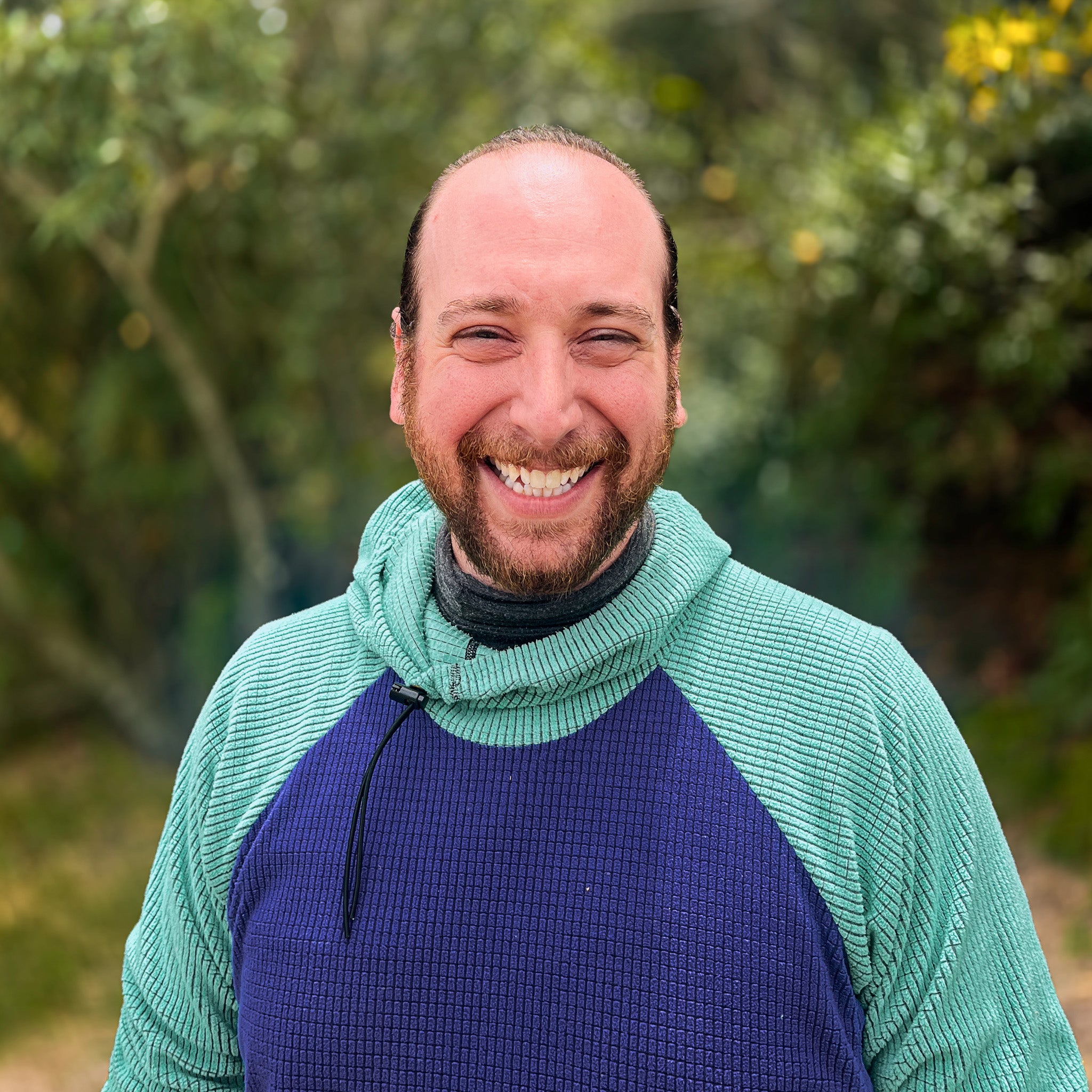
Phil Pogash
Warehouse Associate
-
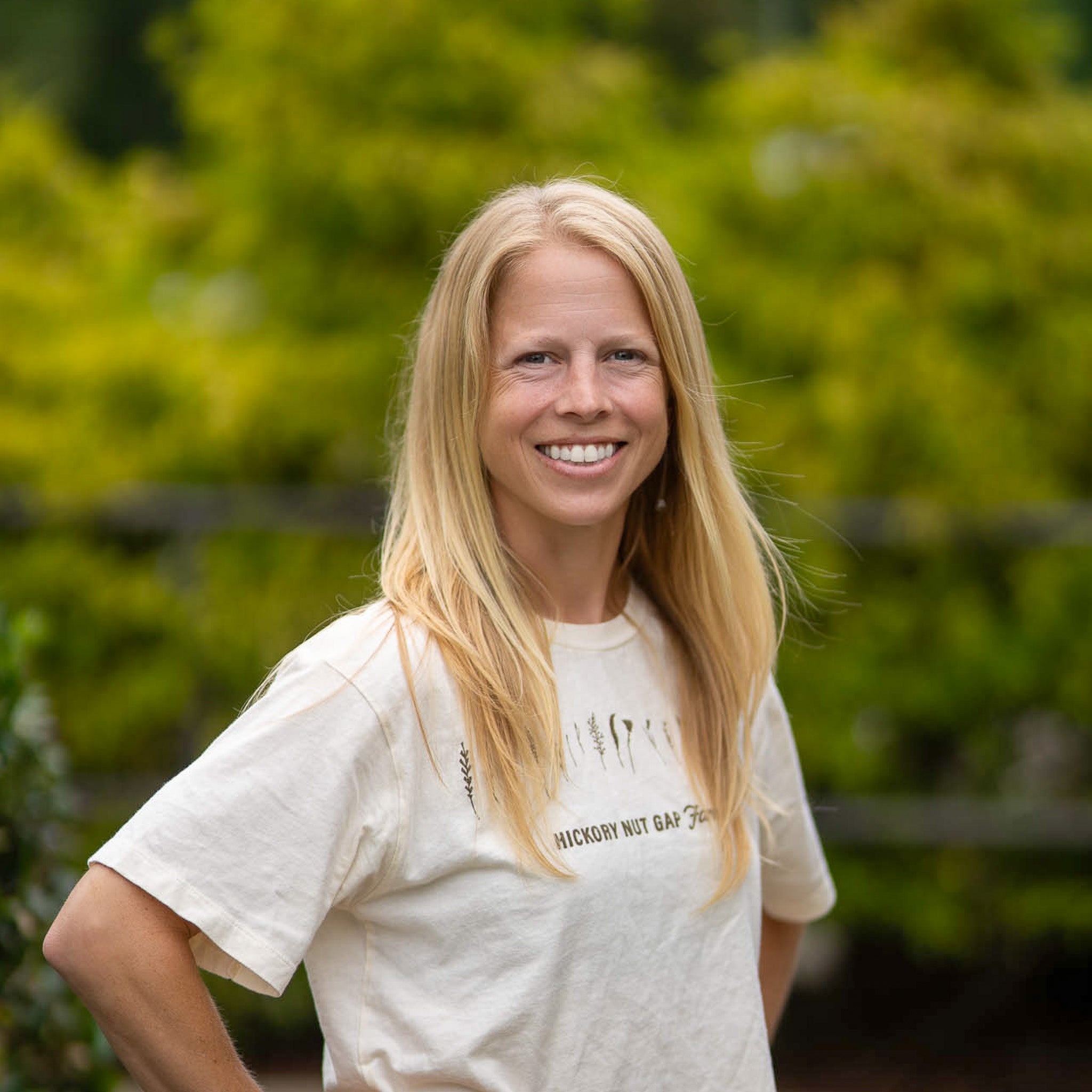
Ann Sitler
Head of Staff & Supply
-
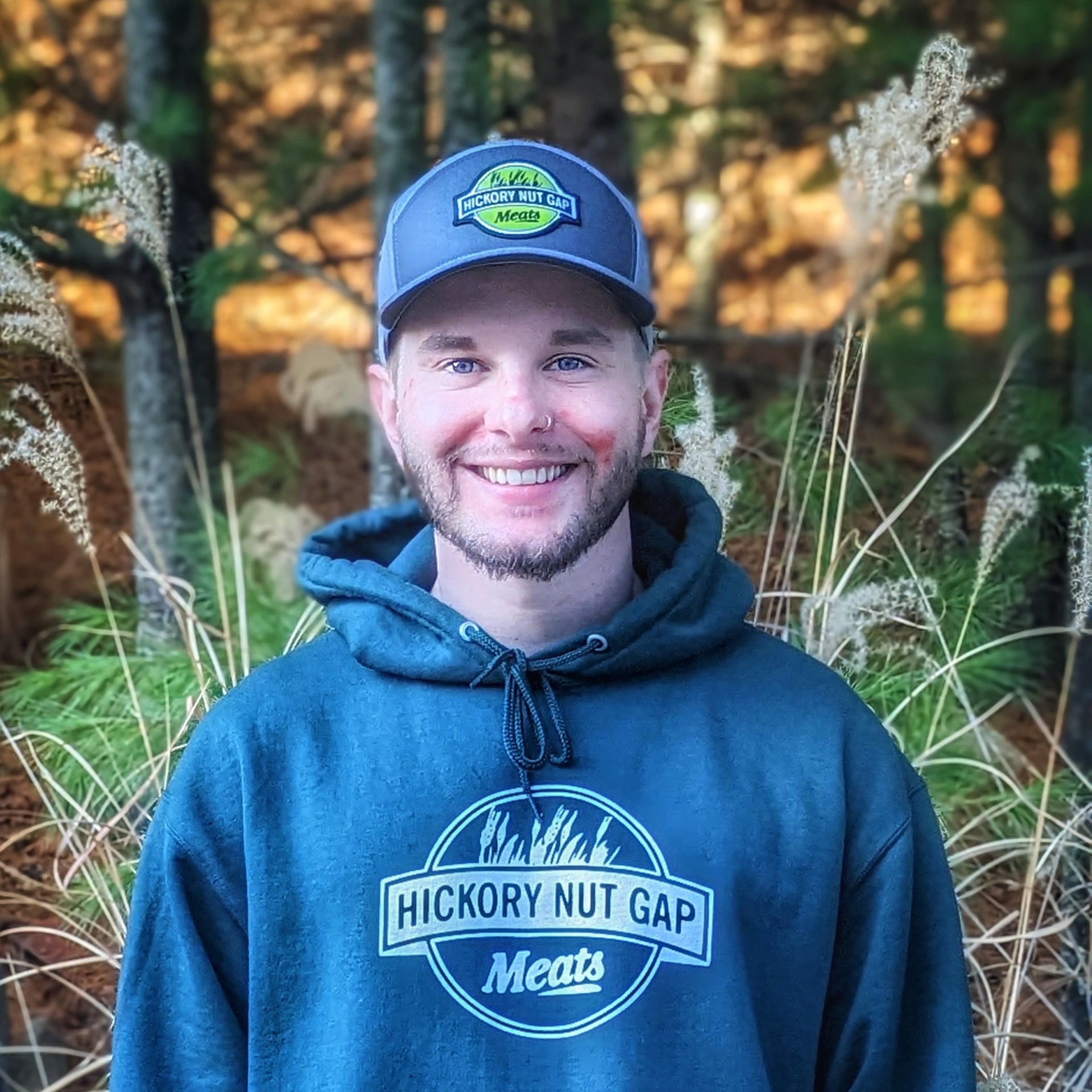
Jordan Uhl
Warehouse Associate
-

Kelsey Winterbottom
Creative Content Manager
Farm Team
-
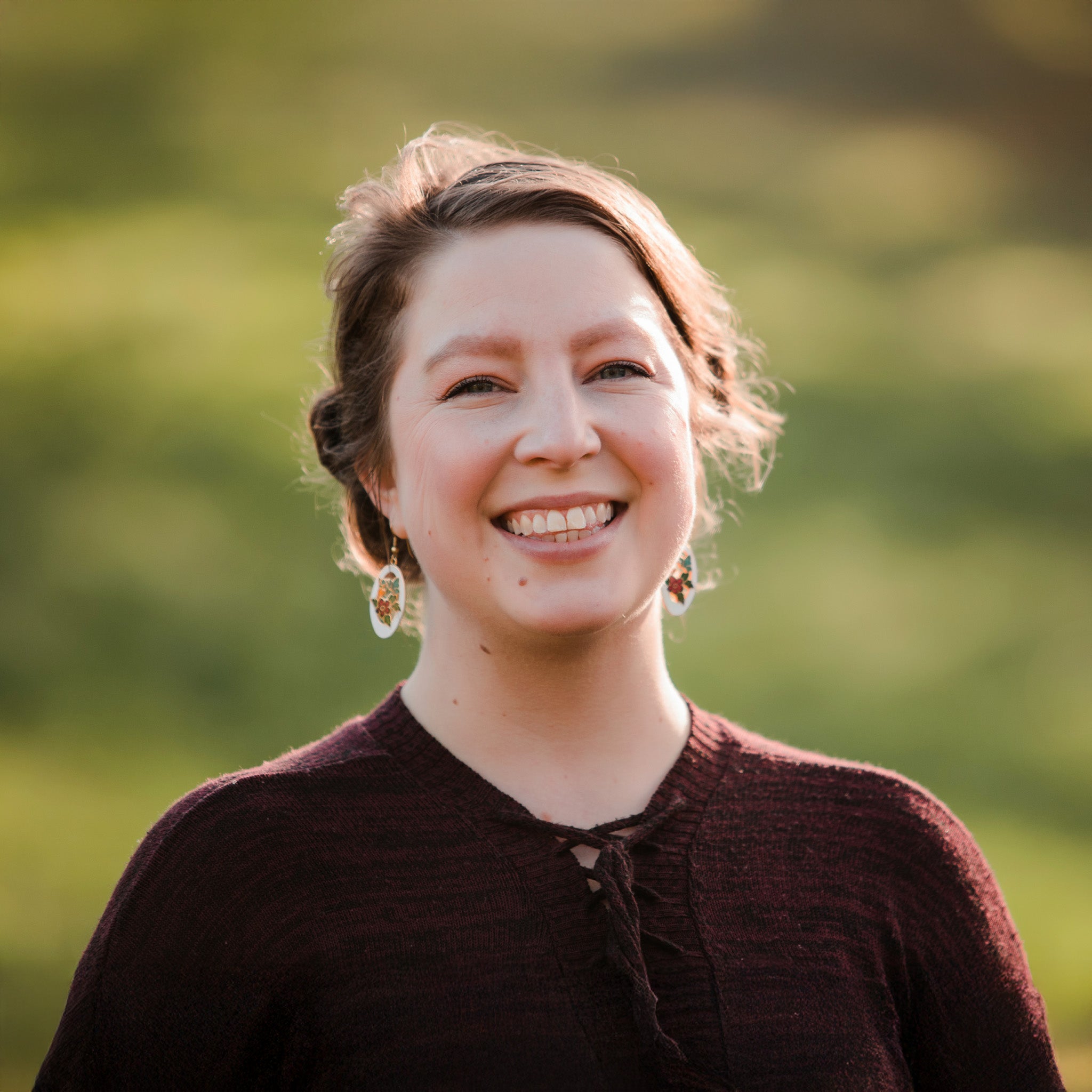
Megan Auten-Cowart
Local Events & Marketing
-
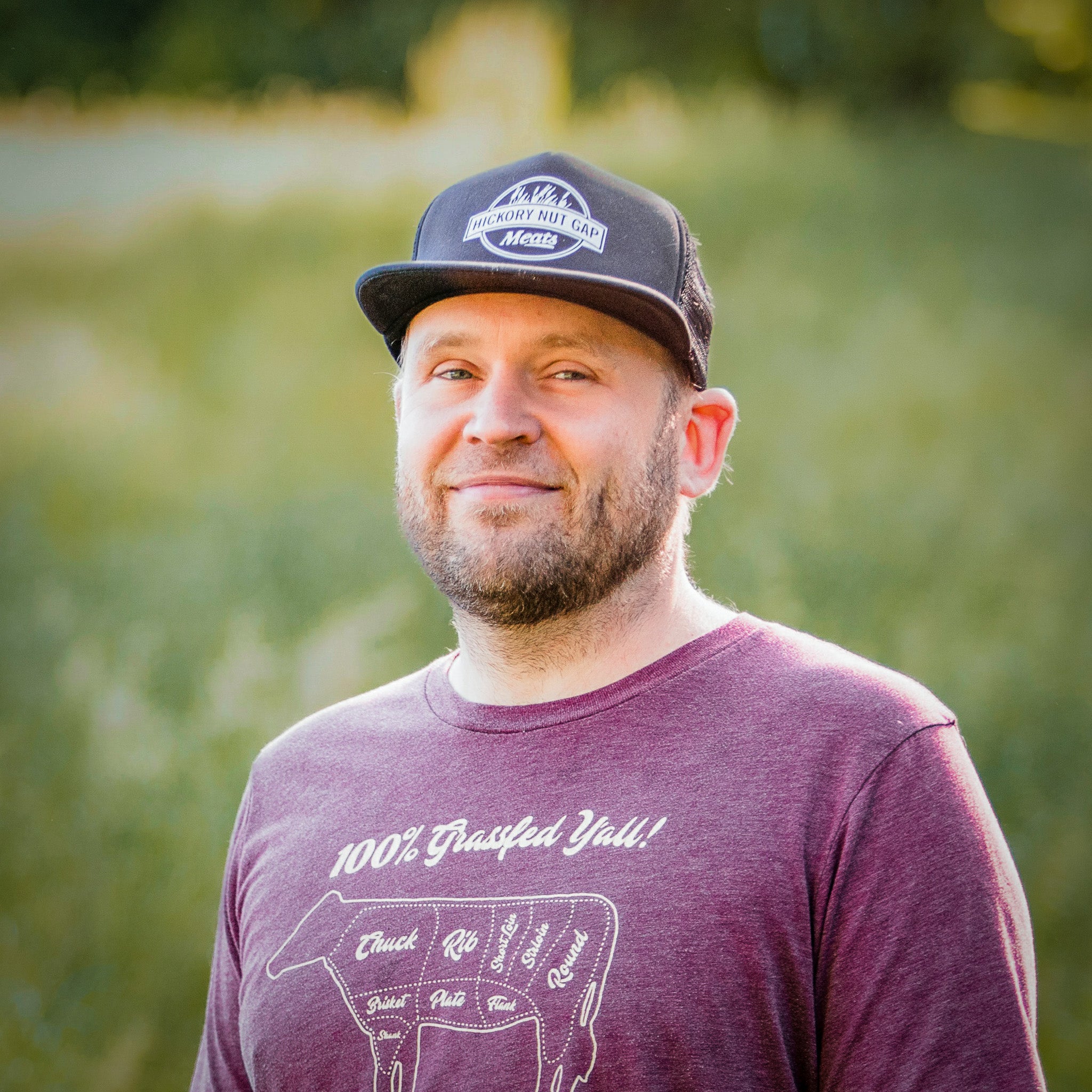
Brian Bermingham
Farm Store General Manager
-
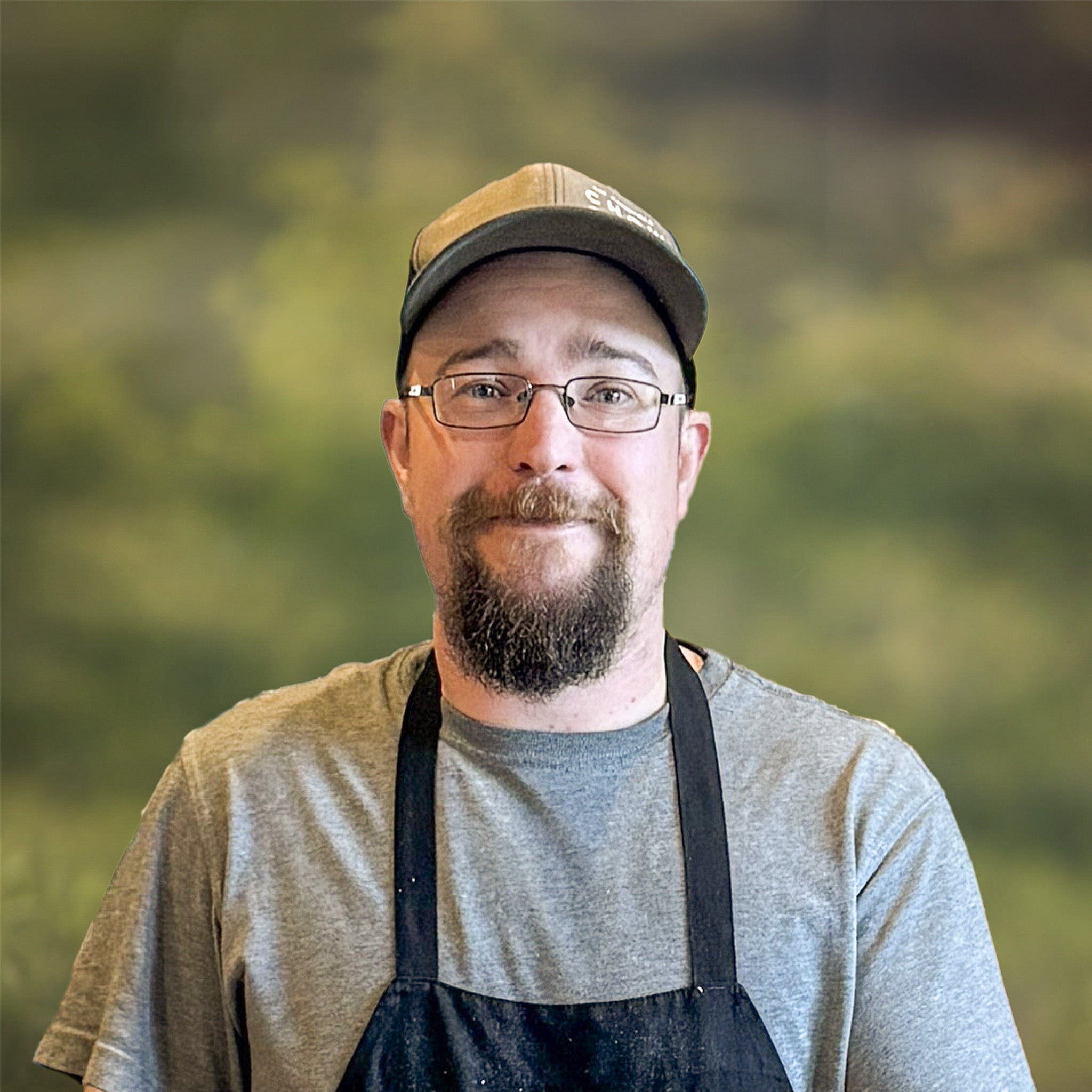
Josh Boaz
Meat Cutter
-
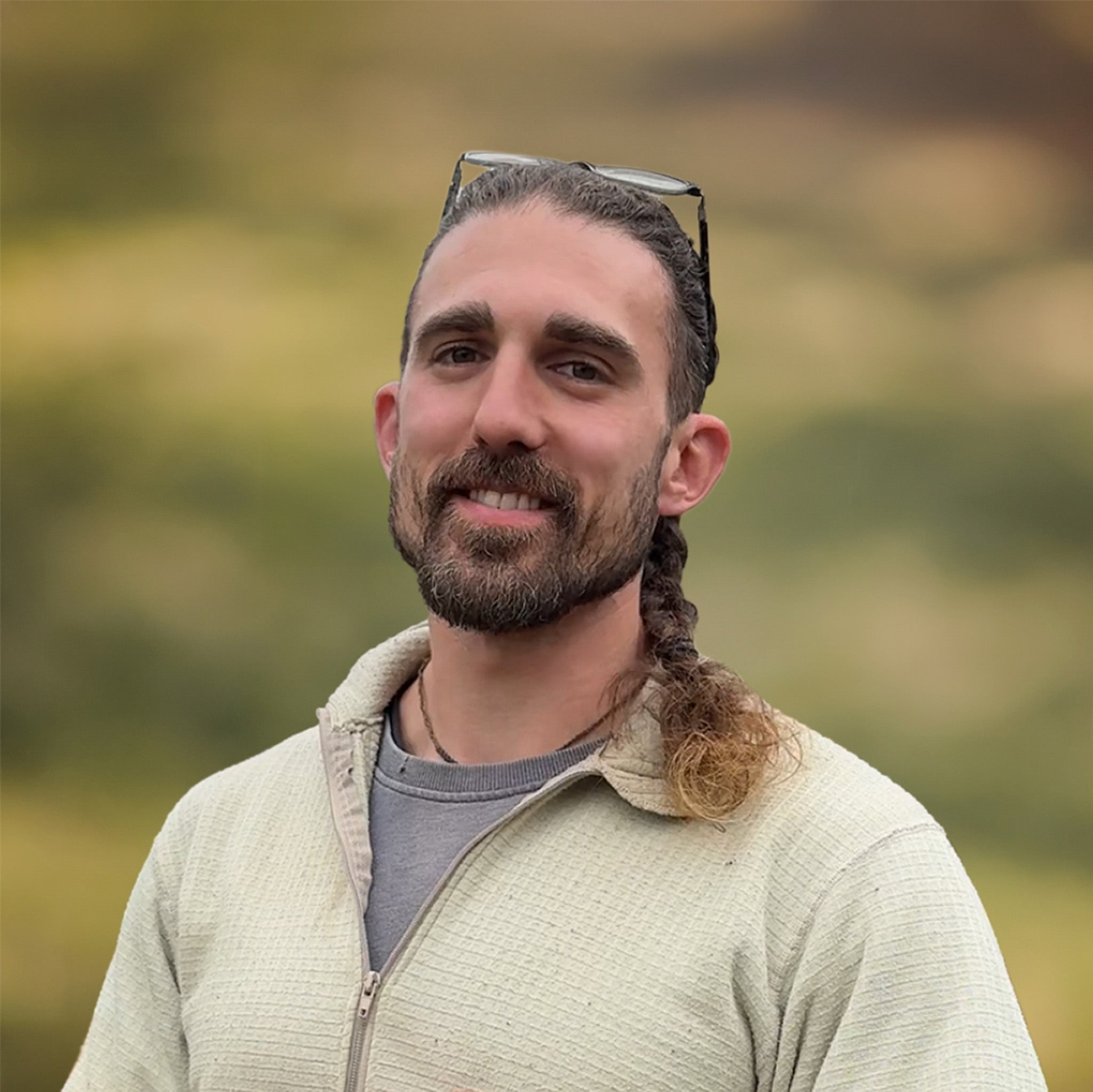
Billy Callis
Assistant Farm Manager
-

Todd Graham
Meat Cutter
-
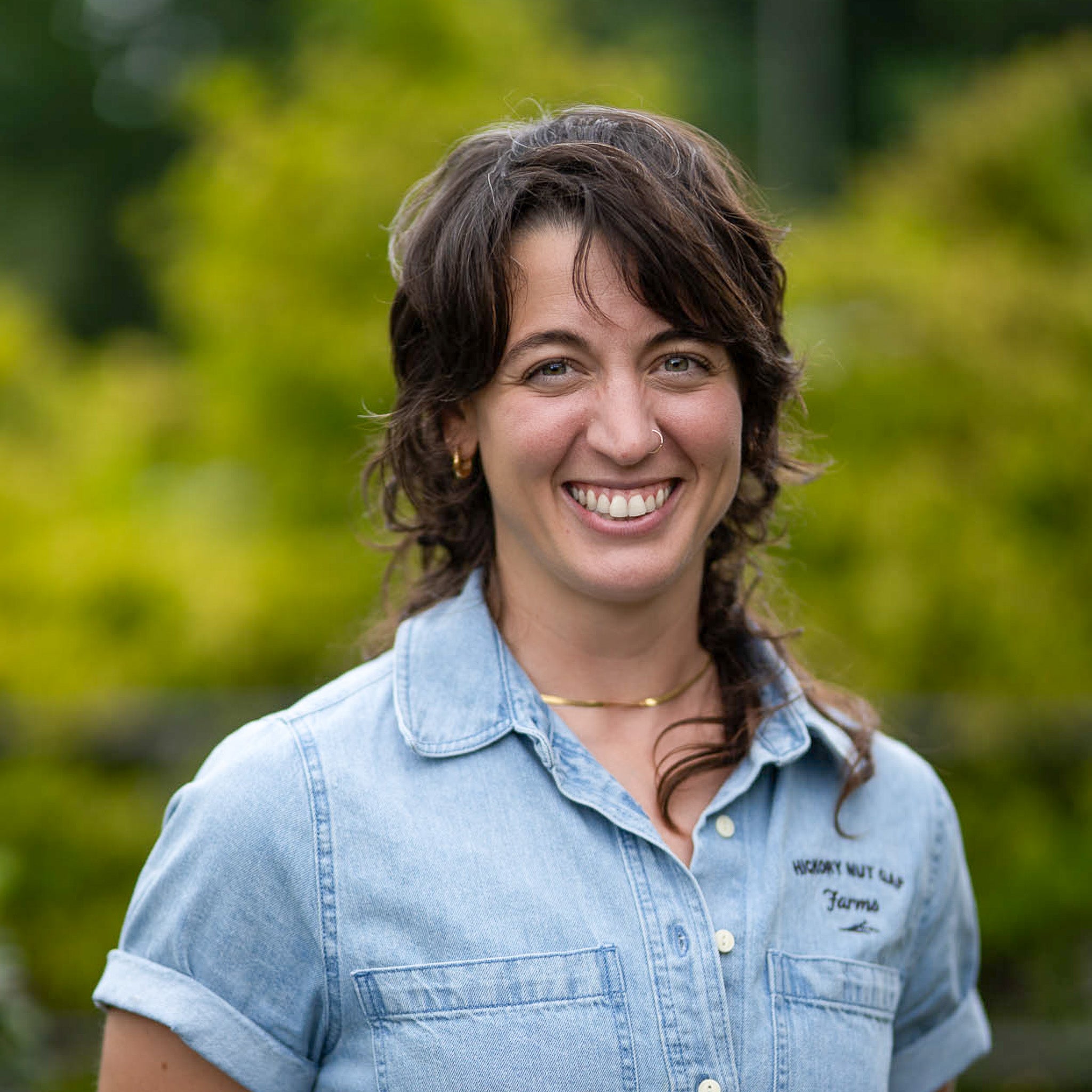
Virginia Hamilton
Head of Farm Operations
-
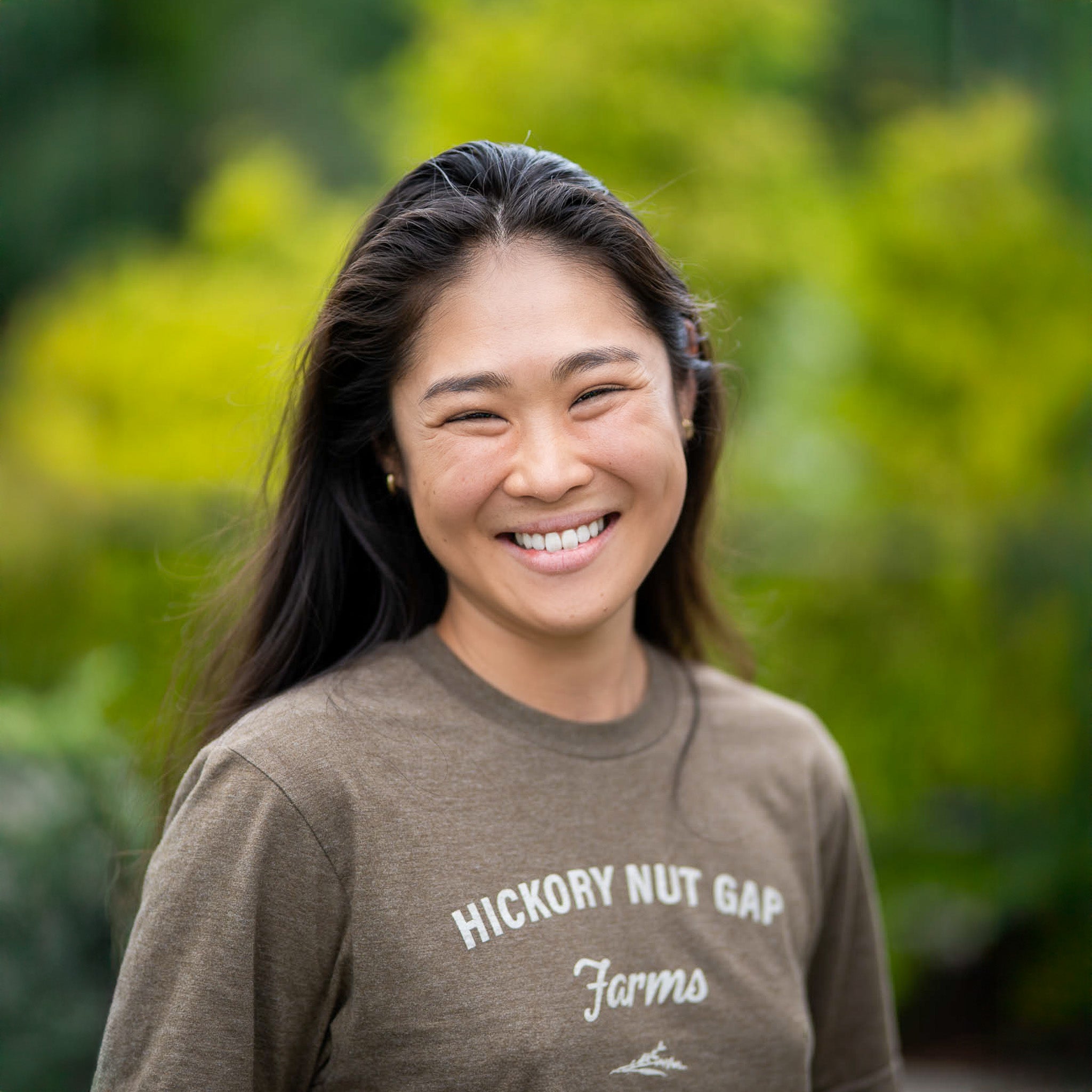
Yuiko Hashimoto
Farm Store Asst Manager, CSA Coordinator
-
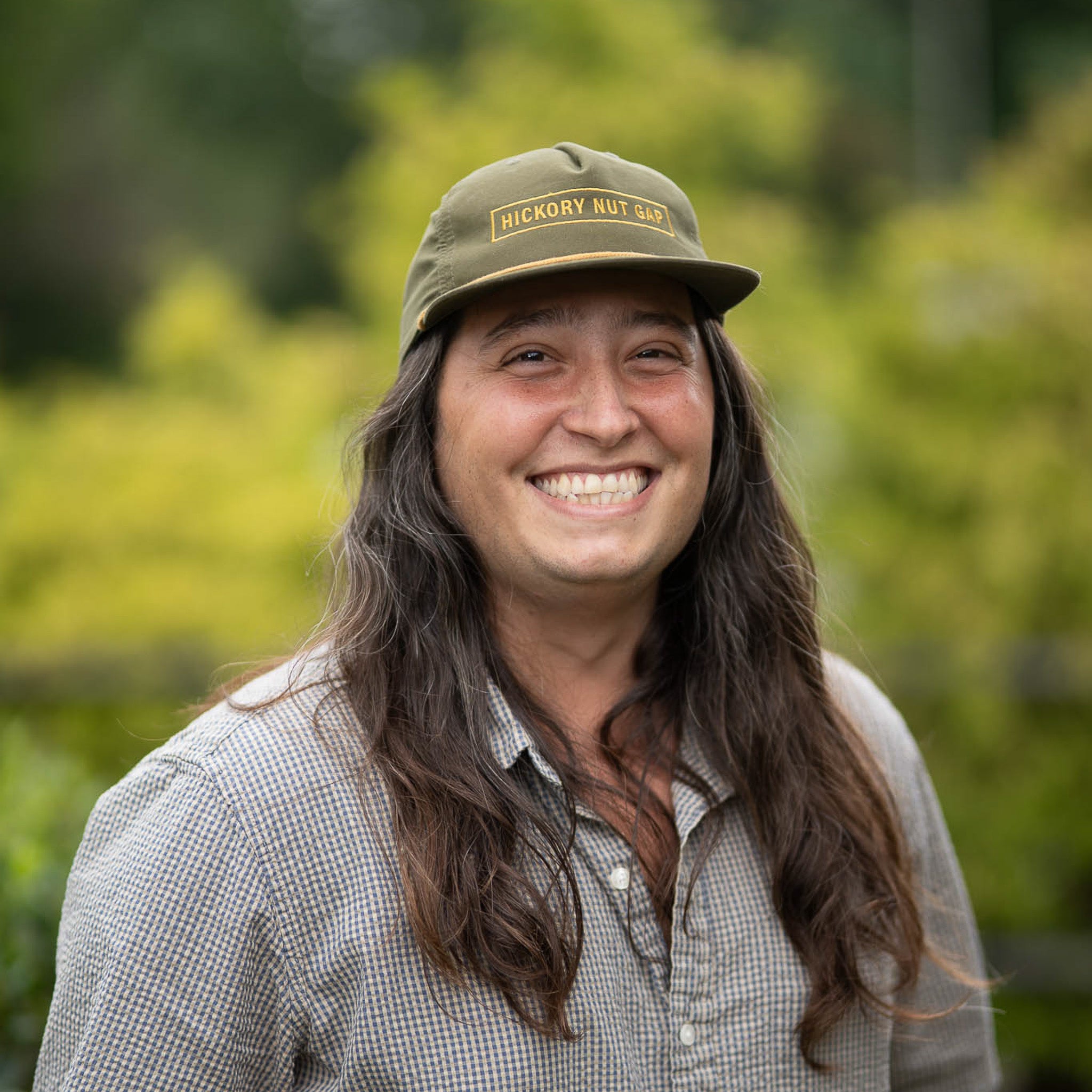
Mikey Hans-Barrientos
Savory Hub Manager
-

Susie Loschiavo
Meat Cutter
-
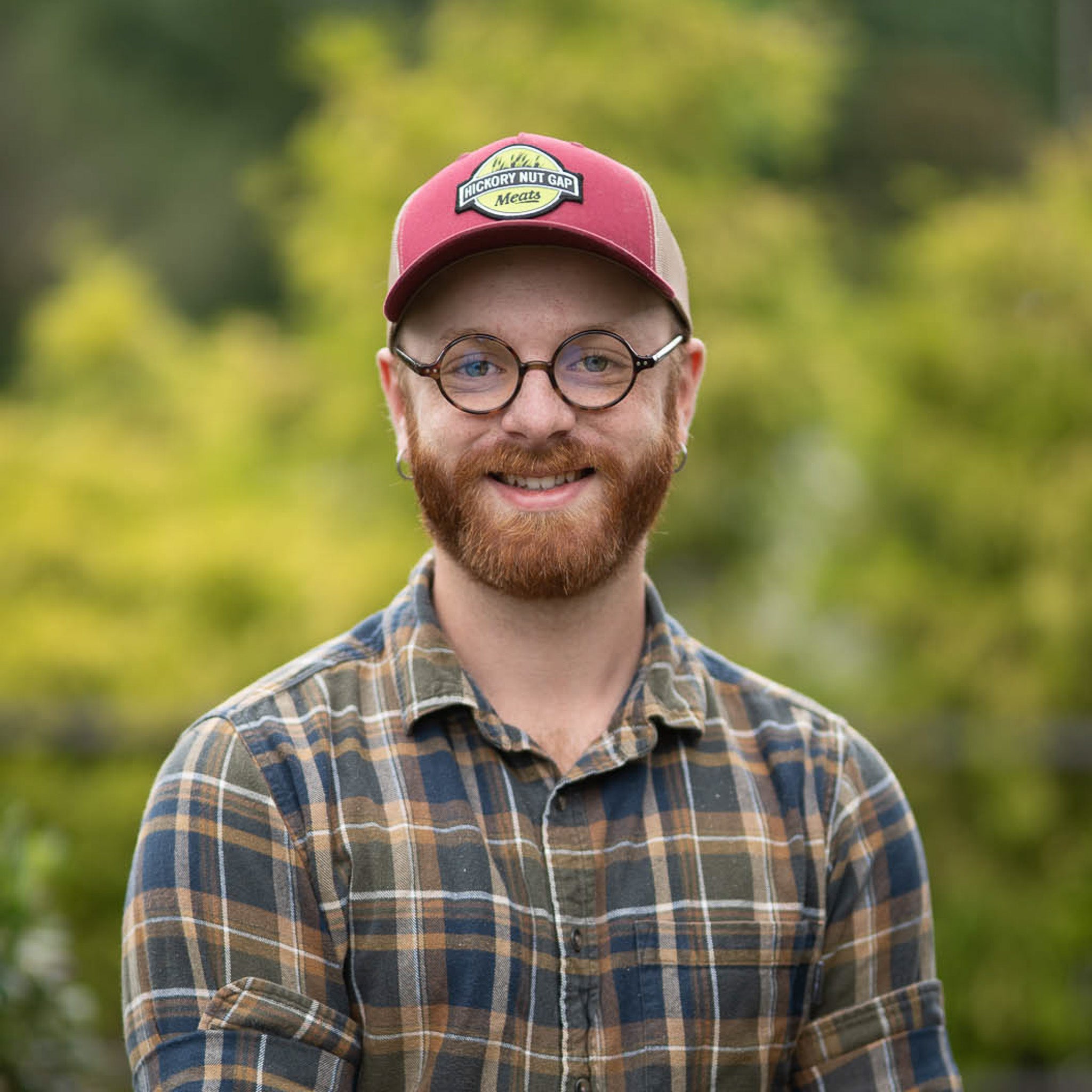
Memphis Martin
Farm Hand, Farmers Market Lead
-

Madison Shields
Farm Store Associate
-
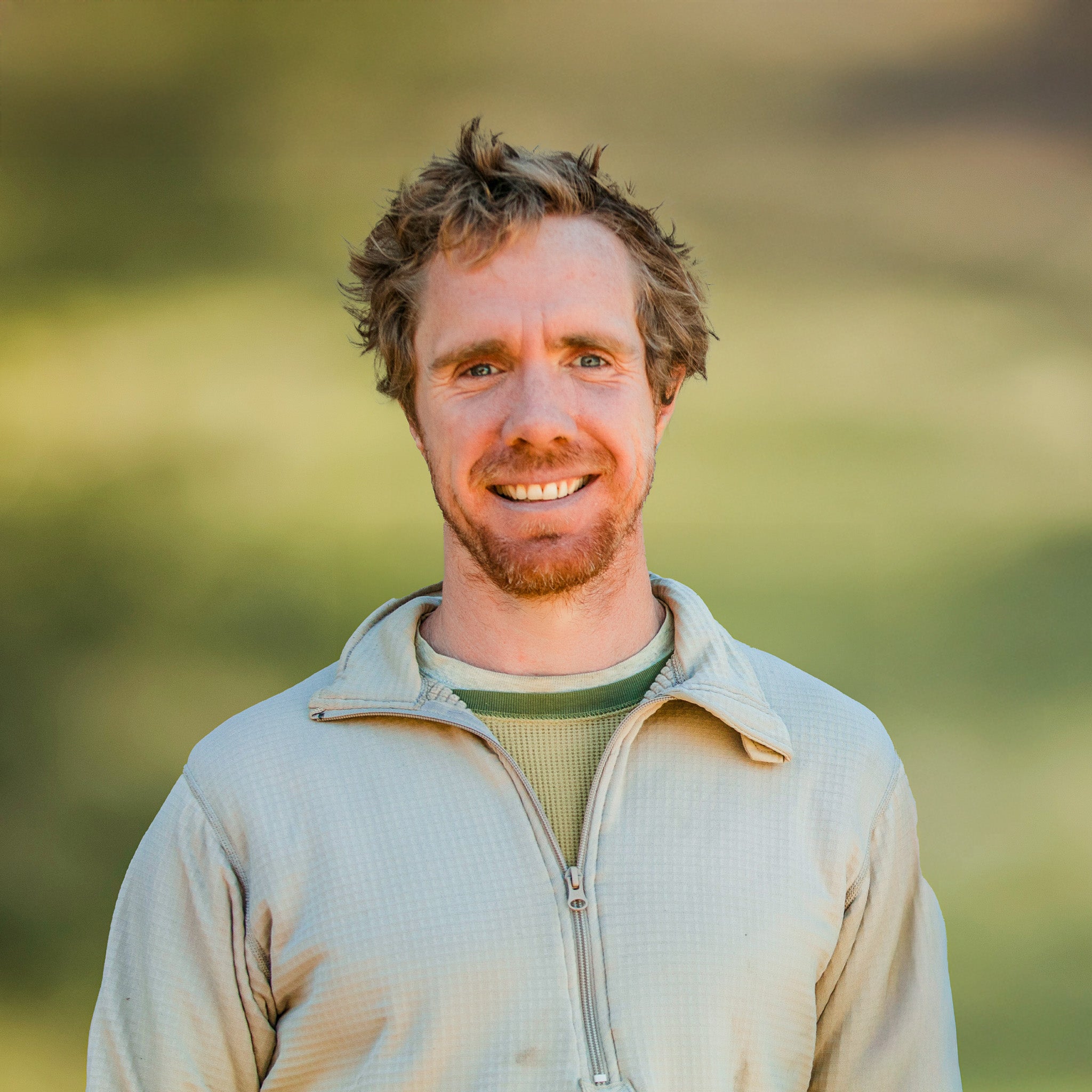
Walker Sides
Farm Manager
History of Hickory Nut Gap Farm
Hickory Nut Gap was a through-road for drovers taking their animals to the markets in the Appalachian foothills at the turn of the 18th century. Hickory Nut Gap Farm's history began on this land in 1916 when Jim and Elizabeth McClure settled here after their honeymoon. 105 years later, we continue to be stewards of the land nestled in the Blue Ridge Mountains on the Continental Divide in Buncombe County.
Today, Hickory Nut Gap is a leader in 100% grassfed beef, and pasture raised pork production in the Southeast. Along with partner farms, Hickory Nut Gap is spearheading the regenerative agriculture movement, using pasture-based farming to rebuild farmland, sequester carbon as organic matter in soil, and work to reverse climate change.
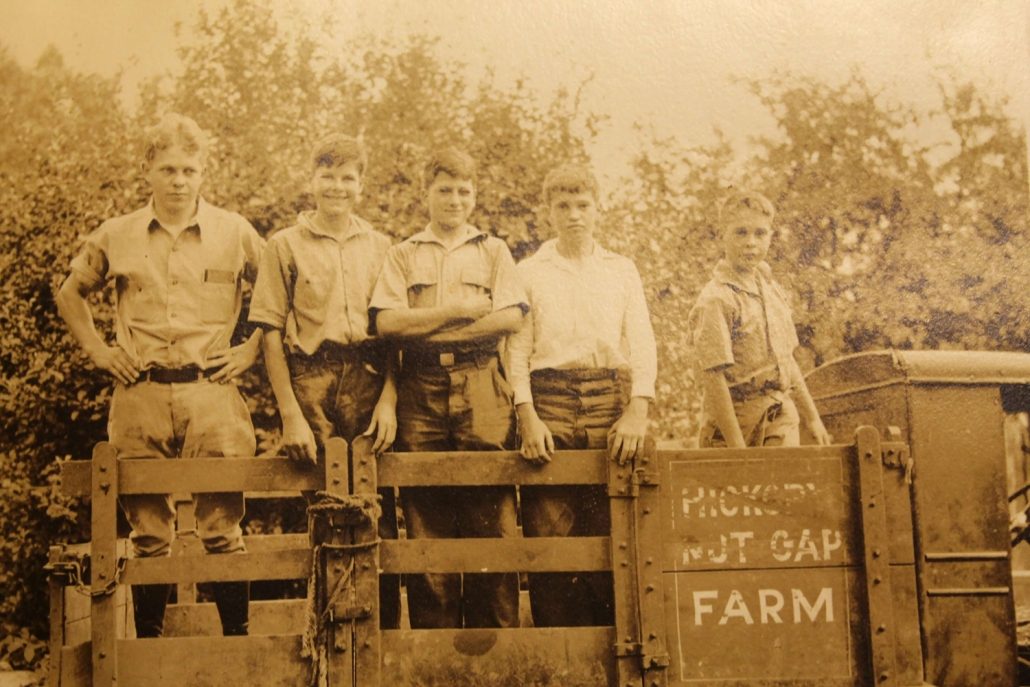
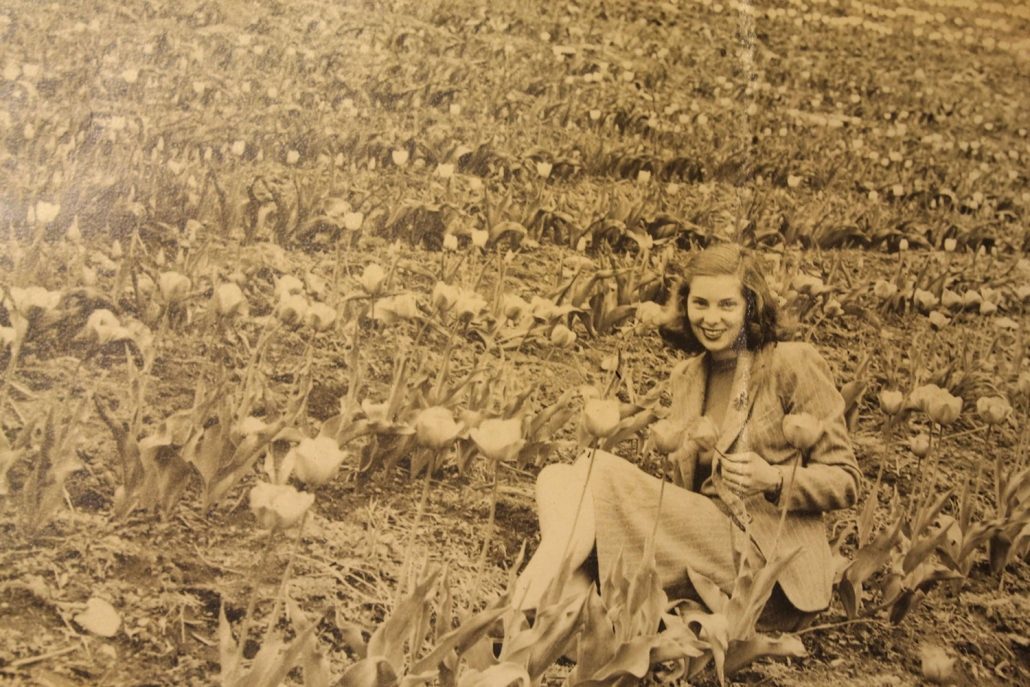
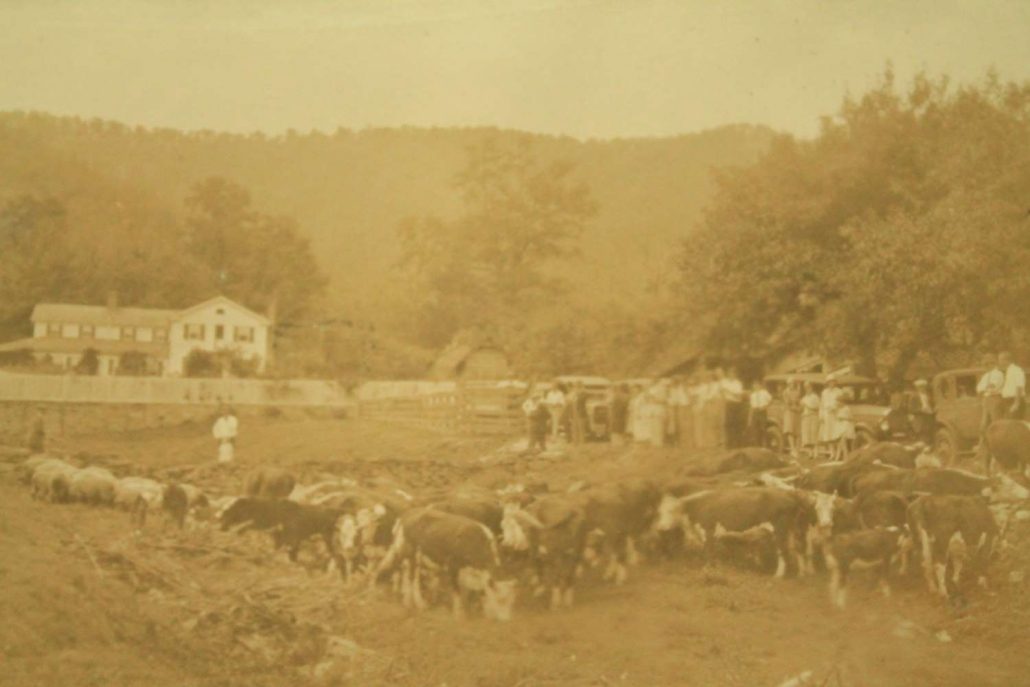
Timeline
Pre-1800s | A field of arrowheads
Cherokee and other Native Americans were stewards of our land prior to the 1800s. We have found many arrowheads in our fields, reminding us to acknowledge that our tenure of this place comes with a responsibility to continue our work in meaningful communion with the earth.
1834 | Sherrills Inn is built
Bedford Sherrill builds Sherrill’s Inn as an overnight accommodation for hog drovers and other travelers going from Asheville, NC to Rutherfordton, NC.
1834-1860 | The Drover's Road
Every fall, hog drovers finished their pigs on the chestnut mast and herded them south to markets in South Carolina and the Piedmont of North Carolina, supplying farmers who primarily grew cotton. This industry played a vital role in Western North Carolina's economy from the 1830s until the Civil War.
1880 | The railroad is built
Built by slave labor, a new railroad passes over the Swannanoa Gap, taking many lives and effectively ending the drover’s industry.
1865-1916 | Economic slump
Western NC faces dire economic consequences after the Civil War and as the result of the end of slavery.
1916 | A new beginning
Jim and Elizabeth McClure arrive in Hickory Nut Gap in their “Honeymoon Hudson” automobile as they travel from Chicago to WNC for a visit. They fall in love with the old Sherrill’s Inn and the surrounding farm, and purchase it soon after. Elizabeth devoted herself to restoring the inn and it’s landscaping, which is still a prominent feature of the property.
1918 | Hickory Nut Gap Farm Company
On April 30th, 1918 Jim McClure held the first official meeting of the Hickory Nut Gap Farm Company.
1920s-1930s | Farmers Federation
In 1920, Jim McClure initiated the visionary Farmers Federation, a cooperative organization to bring better agriculture to Western North Carolina. The Farmers Federation blossoms into a large organization with branches throughout WNC. Jim McClure successfully leads fundraising efforts with classmates and other contacts from Yale in New York City.
1940s-1950s | Elspeth & Jamie Clarke
The McClures’ oldest daughter Elspeth ends up working in Charleston during World War II and falls in love with Jamie Clarke. They get married in 1842 and move back to Hickory Nut Gap Farm to work with the Federation. They have eight children and raise them all at Hickory Nut Gap Farm, raising apples, beef and dairy cattle.
1960s | End of the Farmers Federation
The Farmers Federation ends due to economic hardship. This is a very important turning point for agriculture in western North Carolina.
1980s | Jamie Clarke represents NC District 11
Jamie Clarke is elected to represent District 11 in the US House of Representatives, and serves three terms during the 1980s.
1990s | Annie & John Ager
Annie Ager, one of Jamie and Elspeth’s eight children manages the apples, horses, sheep, pigs and laying hens on the farm on a day-to-day basis while raising four sons with John. The brothers, with lots of help from the community, help their mom feed animals, make hay, birth lambs and calves throughout the year.
1990s | Jamie & Amy Ager
Jamie Ager, a son of Annie and John Ager, meets Amy Frey at Warren Wilson College. They graduate, and begin participating in the farm with a vision to grow pasture raised meats and market them to local folks and restaurants in the community and beyond. They marry in 2001 and have three children.
2005 | Grassfed goes to grocery
Jamie takes NC State Ag Leadership Class and meets Sam Dobson, a dairy farmer from Iredell County. Sam and Jamie partner on scaling the grass finished beef model. EarthFare at Westgate Shopping Center stocks Hickory Nut Gap ground beef, and Greenlife (now Whole Foods) purchases one cow a week, inspiring the first regular sales from grocery partners.
2008 | Conservation easement
The descendants of Jamie and Elspeth Clarke which include the Clarke, Ager, and Hamilton families enter the farm into the Buncombe County Farmland Preservation Program. This decision is critical to the future of the Hickory Nut Gap business under Jamie and Amy’s ownership because it means the farmland will remain in agricultural production for perpetuity.
2017 | Scaling sustainably
Hickory Nut Gap develops a strategy to scale the pasture raised and 100% grassfed meat supply chain by expanding local and regional farm partnerships. The team, operational systems and structure are formed to execute this vision while solidifying the activities and community engagement to support this vision at Hickory Nut Gap.
2021 | A Savory Hub
Hickory Nut Gap becomes an accredited Savory Hub. A Savory Hub, as facilitated by the Savory Institute, is a local or regional center that serves as a hub for regenerative agriculture and holistic management practices. These hubs are established in different locations around the world and act as focal points for education, training, networking, and support for farmers, ranchers, land managers, and communities interested in implementing regenerative practices.
2024 | Hurricane Helene
Hurricane Helene hits western North Carolina on September 27th, 2024. The floodwaters are devastating, and the rain causes landslides throughout Hickory Nut Gap. The farm team manages to get almost all animals to safety. Employees lose homes, cars, and bridges. The farm loses fencing, some chickens, and is without power for 3 weeks.
James McClure's Diary Entries, 1918
-
August 1
The cursed, cursed pigs are rooting up the whole lawn.
-
September 13
Sent wheat to Alexander’s mill & they said it was the best wheat they had had brought in.
-
September 18
…molasses being made, Fin, John & Foy at the evaporator, John with Red & Brown [the mules] hauling cane—& W.B. Morgan, Croak & Zeb stripping & cutting cane.
-
October 8
Finished picking apples totaling 125 [barrels] …Started [grain] dryer this day & it did twice catch on fire & we are feeling sullen at the demonstrating agents for getting us into it.


























